Ten years as a professional writer and editor
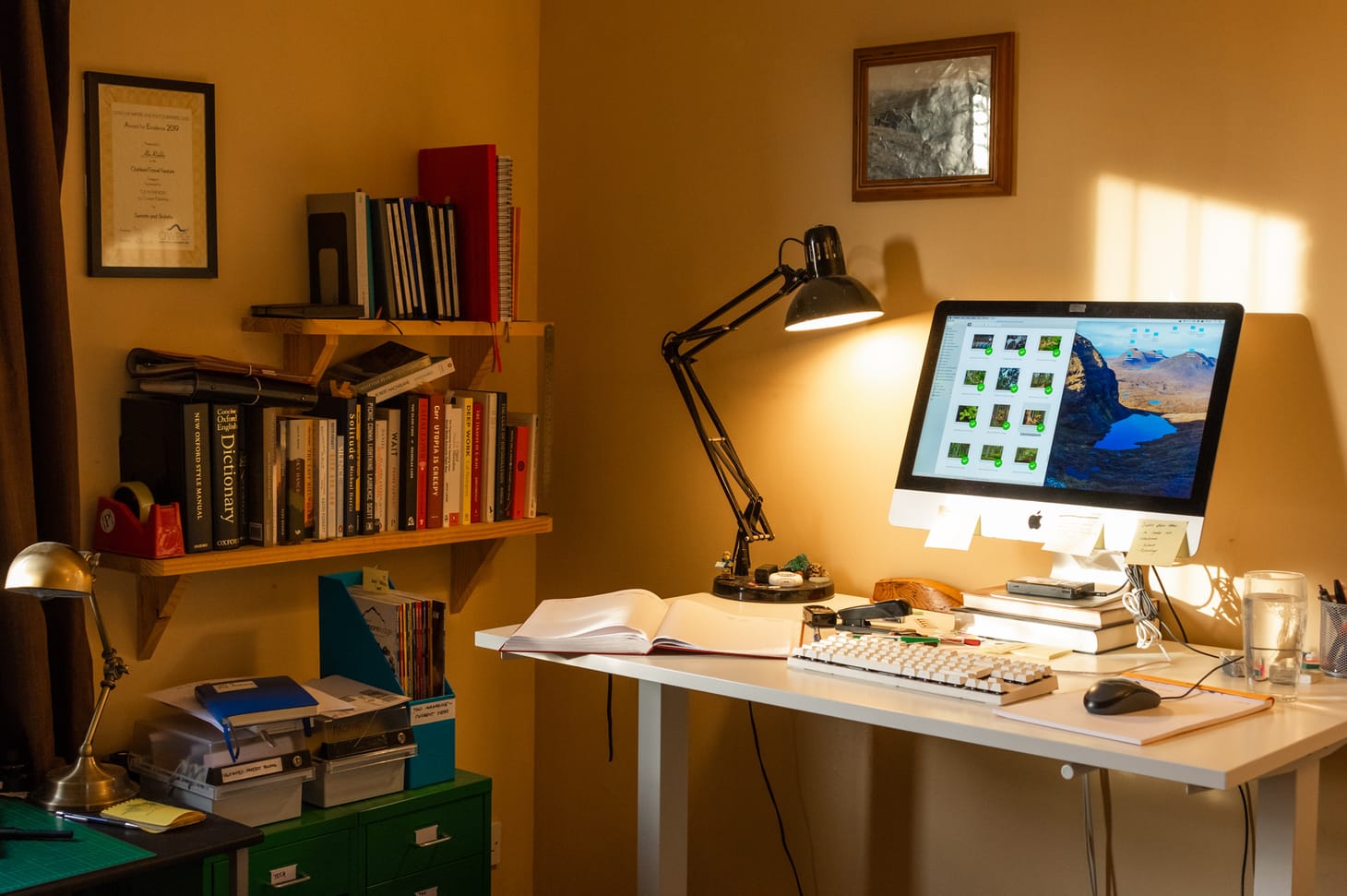
In early July 2014, while hiking in the Alps, an idea I'd been considering for some time finally resolved into a plan. I would quit the day job and dive into a new career as a freelance editor and writer.
WHOOSH! Hear that? It's the sound of a decade whizzing past. Ten years later, older and theoretically wiser – certainly with more grey hairs – let's take a look at the highs and lows of this career so far. What have I learned? What would I do differently? And where am I heading next?
The situation in July 2014
In 2014 I was 28 years old and had a part-time job as a phone salesman at Carphone Warehouse in Skegness. This job was just about as dystopian as you can guess, and mostly consisted of using dishonest sales techniques to flog smartphones to people who did not need or want them. I consistently failed to hit sales targets because I couldn't bring myself to aggressively upsell. The toxicity of that environment appalled me.
Something had to change, but it took months to build up the courage to actually change it.
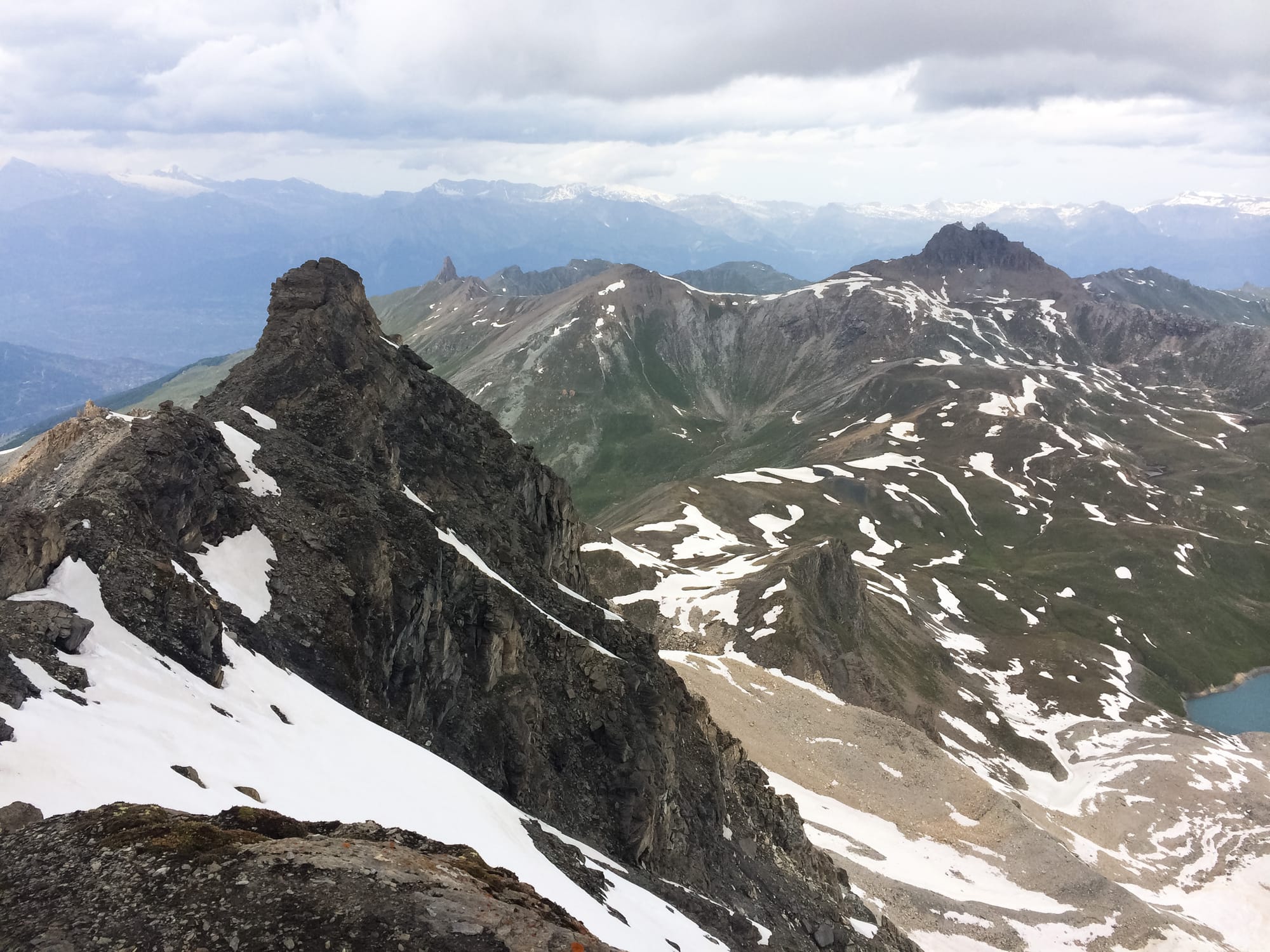
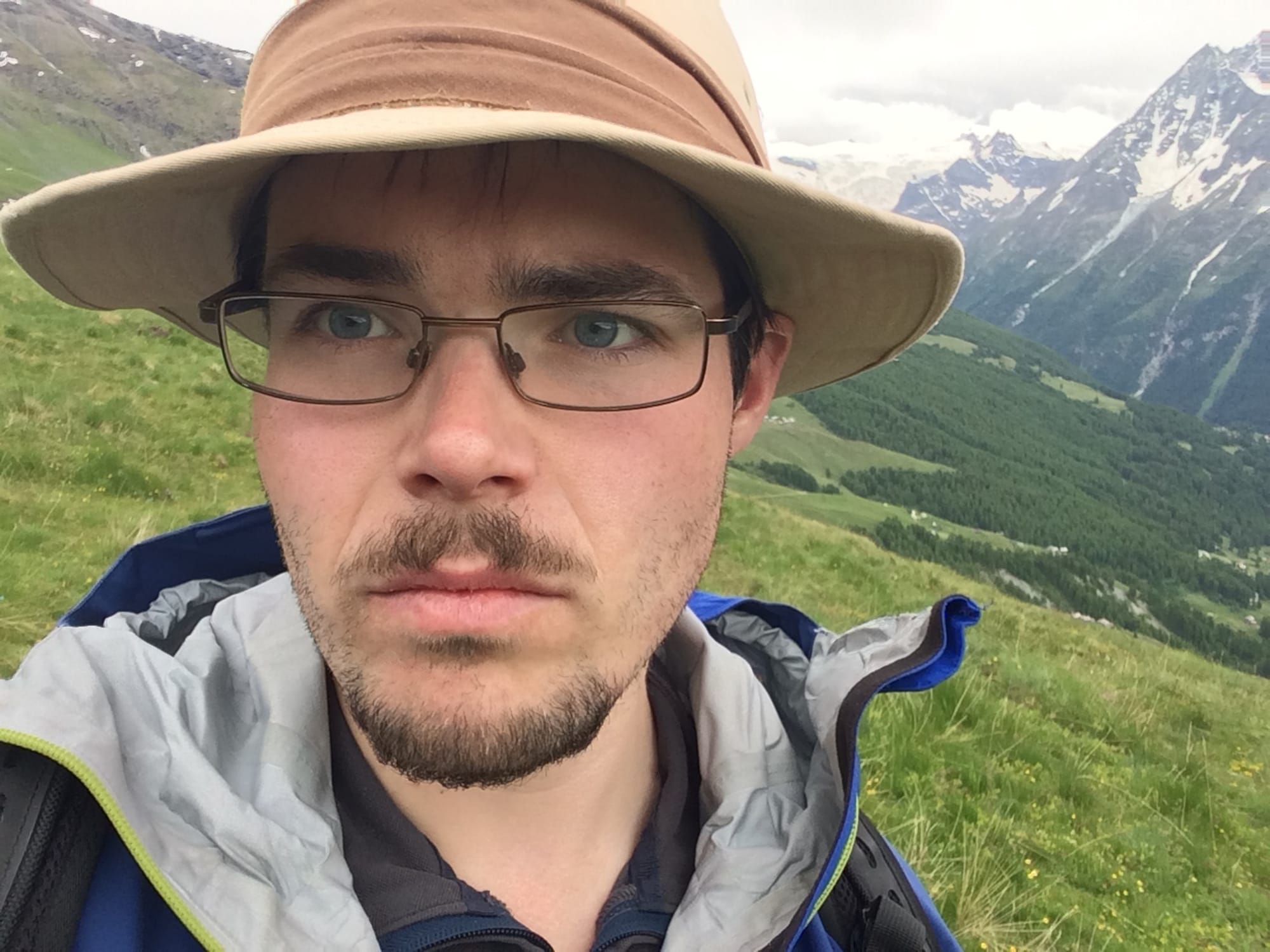
The 'Aha!' moment happened on this walk, ascending Sasseneire in the Swiss Alps
As I wrote in my 'I quit the day job' post from back then, this was not entirely a leap into the dark. I'd been writing fiction since the age of about 10 (albeit with lengthy gaps), and by 2014 I had already self-published several books. I'd been doing manuscript critiques, beta reading, and even line editing on an informal basis for many years. I had contacts in the self-publishing world. People had been asking me to do this stuff for a while. I was already good at it; I just lacked formal training and paid experience.
What about my fiction? Long-term readers might remember The Only Genuine Jones, The Atholl Expedition, and Crowley's Rival. I self-published these between 2011 and 2013. They made a few hundred pounds each in total – certainly not enough to live on, but enough to encourage me that I could theoretically earn money from writing.
Meanwhile, I was also a hillwalker, mountaineer, and backpacker with about a decade of independent experience by that point, including a lot of climbing in Scotland and a bit in the Alps. Although this wouldn't feature strongly in my early writing and editing career, it would eventually come to dominate.
First steps – and a lean first year
The original plan was pretty simple, and focused entirely on editing to begin with. I didn't really have a plan for how to earn money from writing at this point.
My first paying client was Michael Brookes (who sadly passed away in 2023). I edited several of his books, starting with The Cult of Me. Other early clients included Gordon Bickerstaff, Lynda Wilcox, Rick Haynes, Edward Morton, and David Wailing – all members of the Kindle Users Forum UK. I was an active member at the time, and for a while this was a fabulous little community of writers all supporting each other with encouragement and valuable advice. I've been part of several online writing communities over the years, starting with Holly Lisle's Forward Motion back in the 1990s and the NaNoWriMo forums in the early 2000s, but KUF was the best.
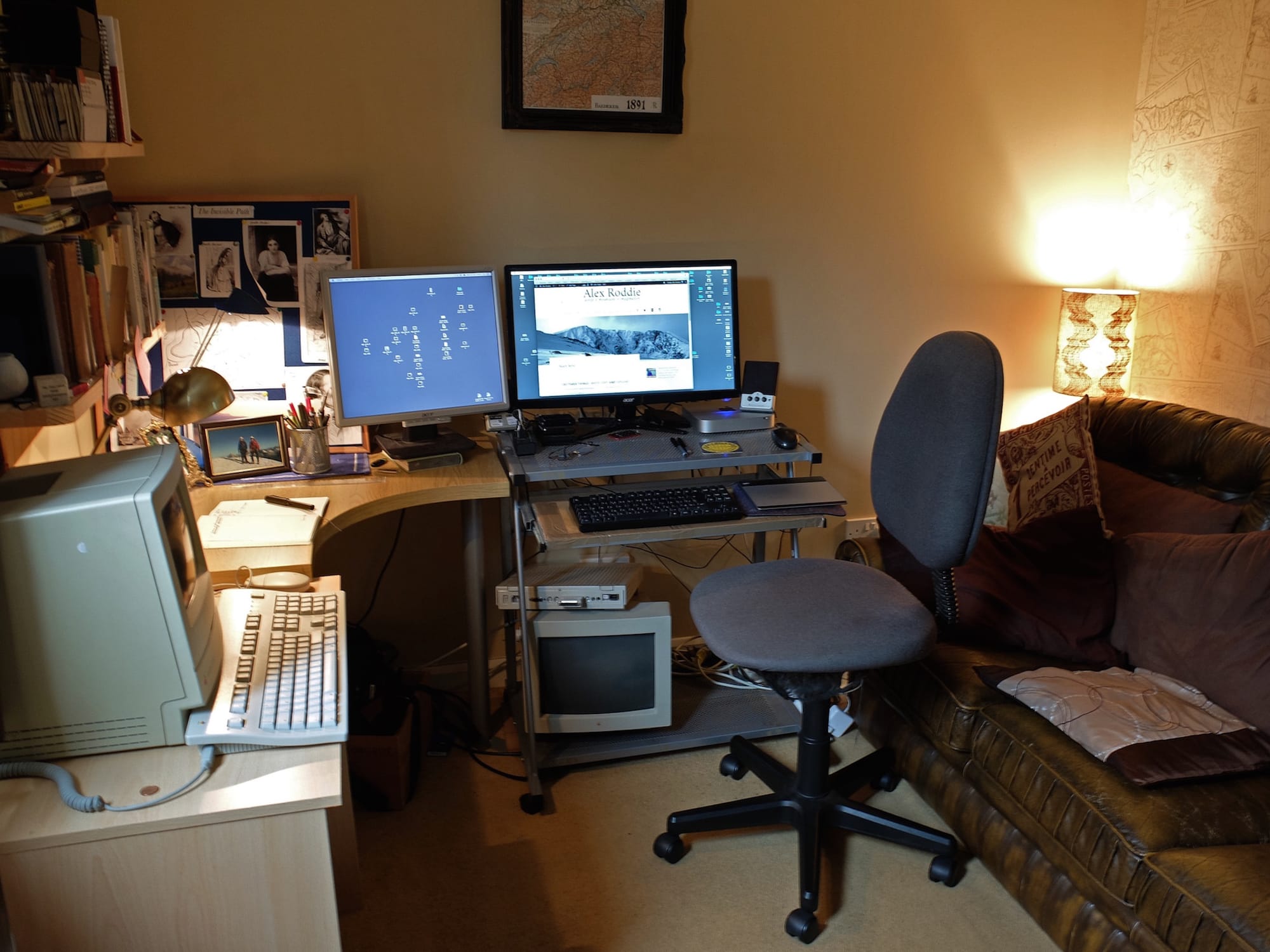
Most of the early books I worked on were quirky and original sci-fi, thrillers, and historical novels. Nobody in this group was writing bestsellers or making a living from their books, but that wasn't the point – this was writing from a place of real passion, and I loved being part of that. Everyone had such hope that maybe, just maybe, one of their books would really take off. We were all looking for the fairy dust.
However, this did cause cash-flow problems for me. These writers could not afford to pay me a lot of money. At the same time, I had imposter syndrome in a big way and did not feel qualified to quote rates anywhere near the industry average.
As a result, my first year as a freelance editor was a lean one. I earned a grand total of £4,335.57 from July 2014 to July 2015. Much as I loved this work, if this business was going to be sustainable I had to make changes.
Expanding into the outdoor industry
These days I'm most known as a writer and editor in the outdoor publishing industry, but my journey from the self-published fiction world took time.
It started in late 2014 with my earliest outdoor author clients. Keith Foskett was the first, and his Appalachian Trail memoir Balancing on Blue was the first outdoor non-fiction manuscript I worked on professionally. I later went on to edit all of his other books.
Another early outdoor client was John Burns. We'd already known each other for several years, but in late 2014 he approached me to ask for advice about a climbing memoir he'd written. This project would turn into The Last Hillwalker, a book that went on to become fabulously successful and can still be seen in bookshops pretty much everywhere. It's often to be found alongside Bothy Tales, which John and I cobbled together with the help of a pile of index cards back in 2017 and continues to be a phenomenon. John's books remain some of my biggest successes as an editor. In fact, I'm working on his latest right now.
Other early moves into outdoor publishing included the mountaineering diaries of Mark Horrell. I started with Seven Steps from Snowdon to Everest in early 2015 and eventually went on to edit many of his books.
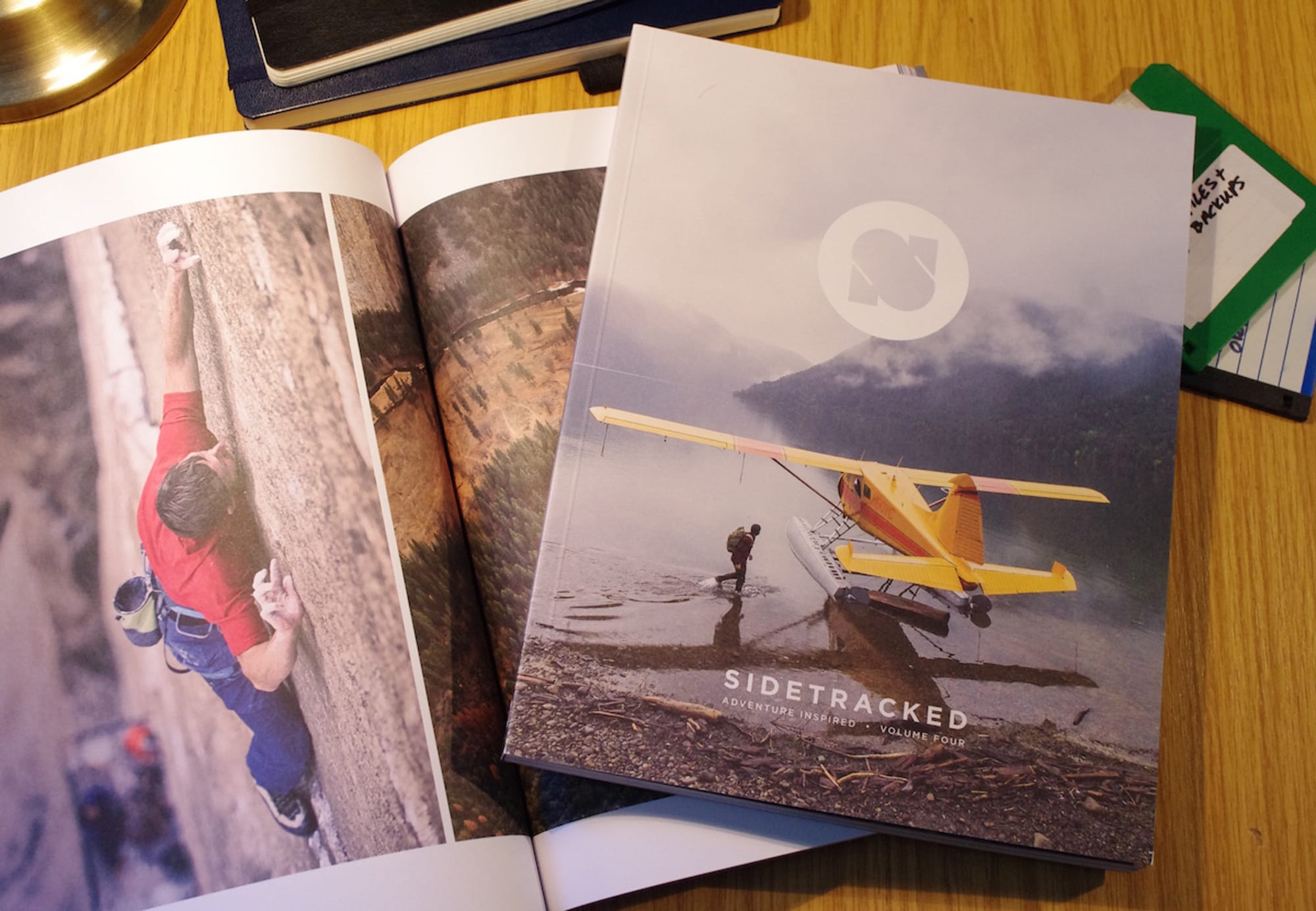
In 2015 I was offered the freelance role of sub-editor at Sidetracked magazine. I've already written about my nine-year career at Sidetracked so far in this recent post, but, to summarise, the opportunity came through Andrew Mazibrada, a writer with whom I'd curated a series of successful sci-fi anthologies. Andrew was editor of Sidetracked at the time. I've been on the team ever since, and Sidetracked has been my most important editorial client for many years now.
Sidetracked was the key to making my business sustainable. A year into the decision to go freelance, struggling with low rates and cash flow, I realised that I needed stable regular income from a permanent role. Although my Sidetracked income wasn't large for those first few years, it did provide the stability I was looking for; I knew that, no matter what, I'd have a bit of work most months.
In late 2015 I also wrote a couple of articles for Mountain Pro magazine and UKHillwalking.com. I'd hiked the Cape Wrath Trail in June that year, and suddenly new opportunities were opening up in the world of outdoor magazines. This proved to be my entry point to writing as a useful component of my overall income.
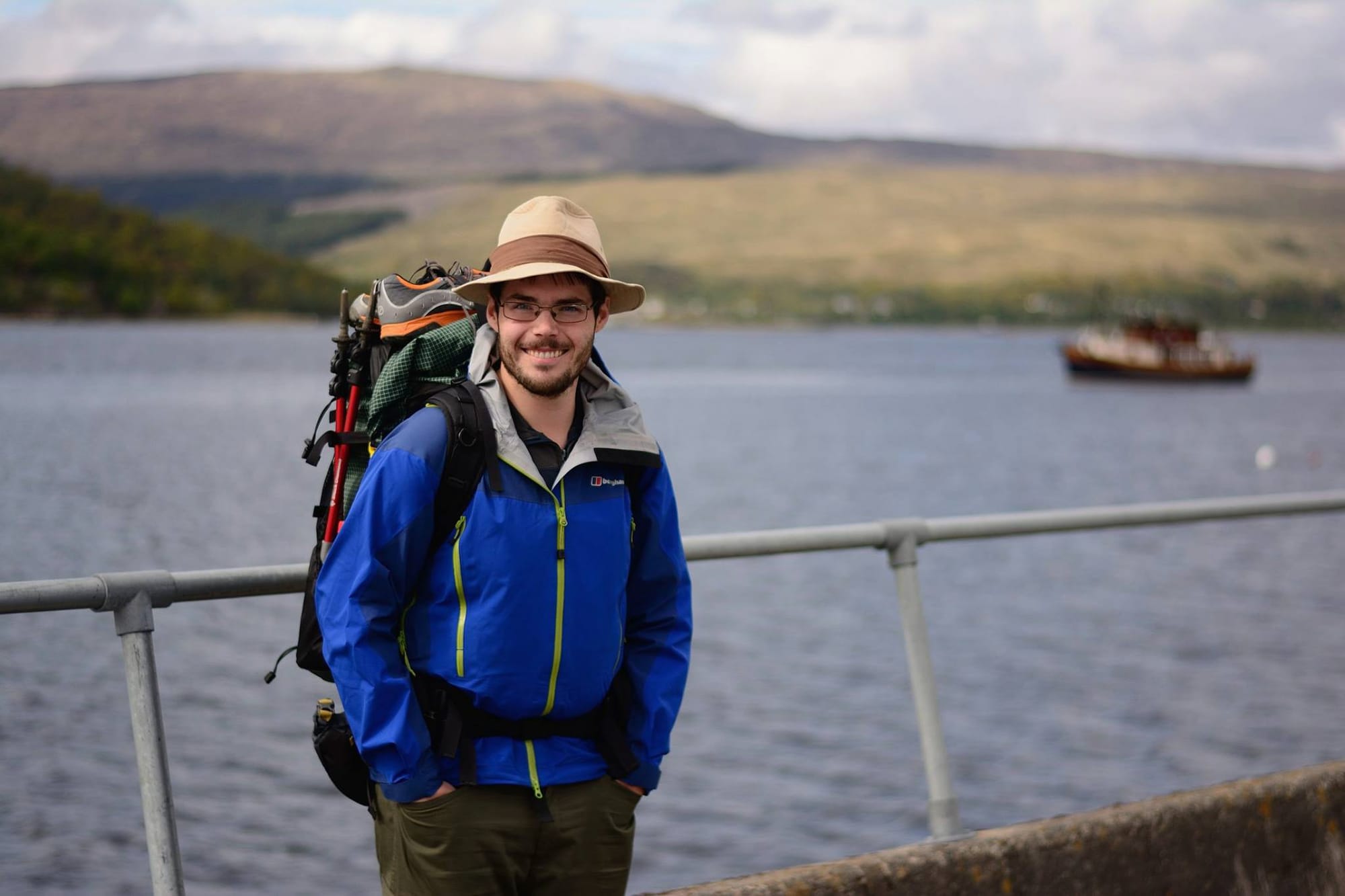
The Great Outdoors magazine
It's likely that some of you reading this know me exclusively through my writing for TGO. I've now been a regular contributor for almost nine years, and have written dozens of articles for them in print – probably several hundred if you count all my online pieces.
It started in 2014 when I attended the TGO Awards event in Kendal. My book The Atholl Expedition had been shortlisted for Outdoor Book of the Year. I didn't win, but I did get to meet many people for the first time – including several I now work with regularly. This was my first real brush with lesson number one: it's who you know, not what you know. Connections matter far more than I realised back then.
A year later, Emily Rodway, then editor, emailed me to ask if I wanted to write an article about the Cape Wrath Trail. I hadn't met Emily at Kendal, as she was away on maternity leave at the time, so I don't really know if I'd made an impression on anyone at the magazine. It's more likely that Emily had seen one of my tweets, wanted to publish something about the CWT anyway, and I happened to be available at the right time. Lesson number two: timing is everything. I've also got to acknowledge here that random luck played a pretty big part in this. I can't claim too much credit.
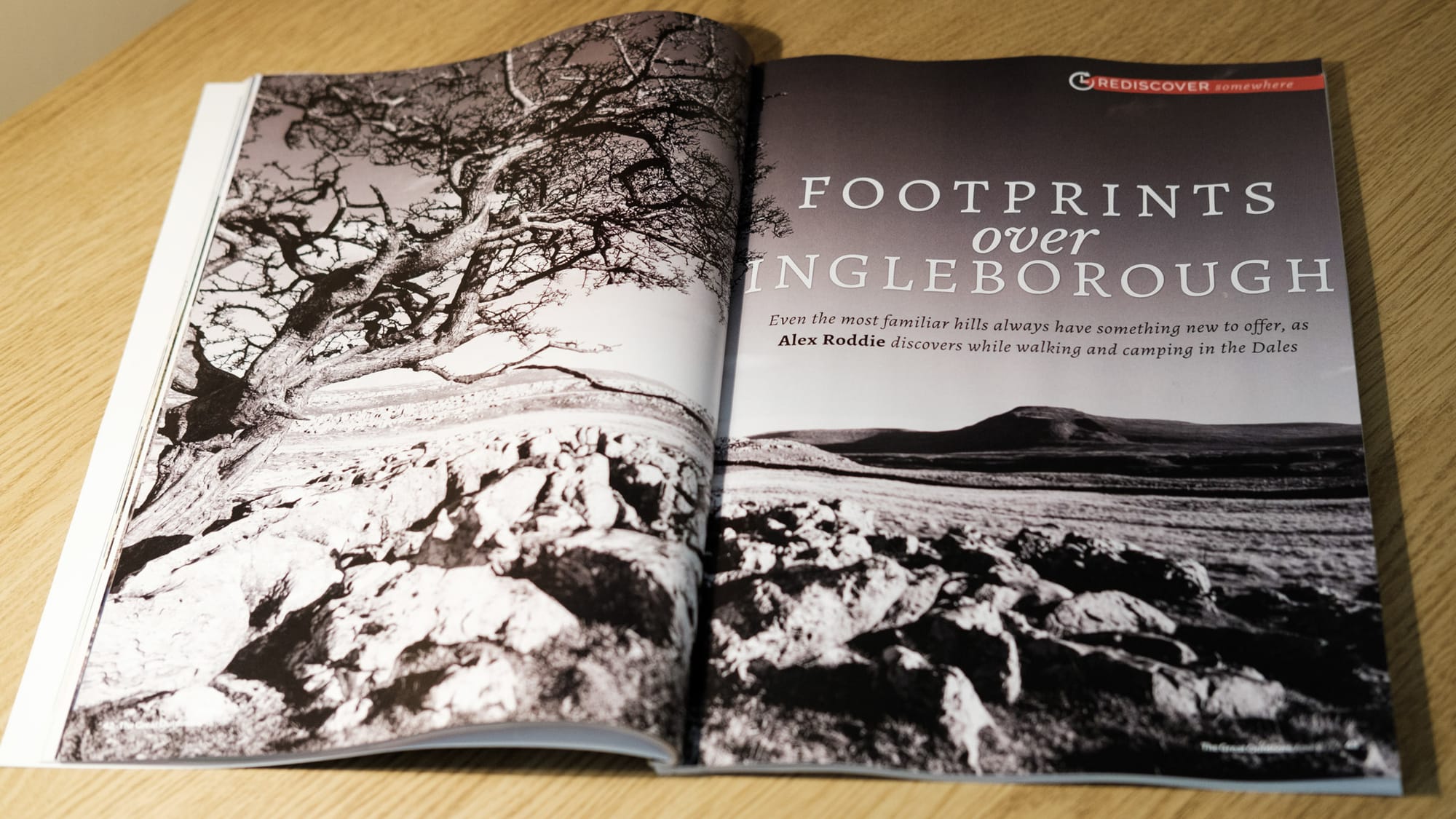
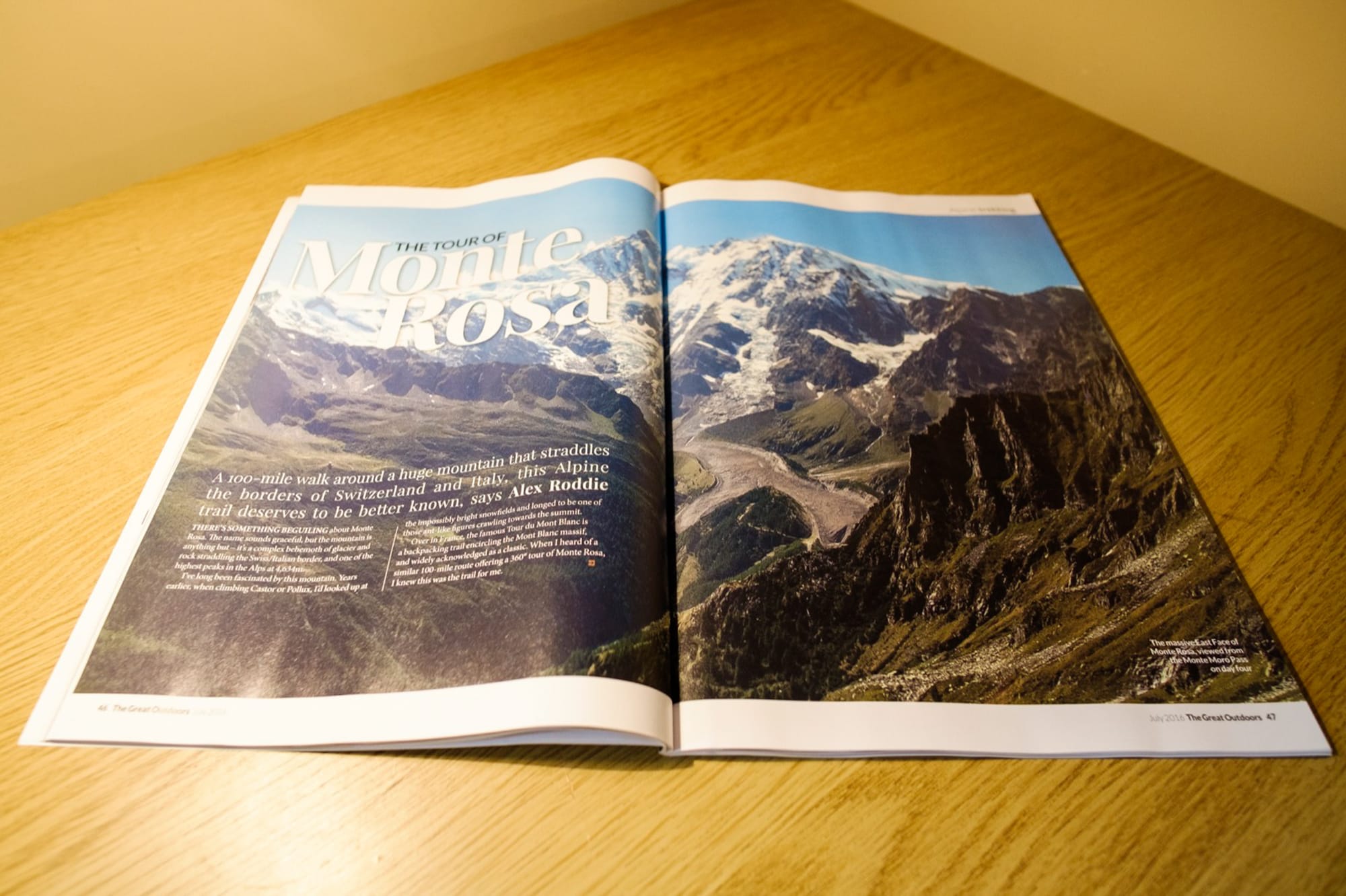
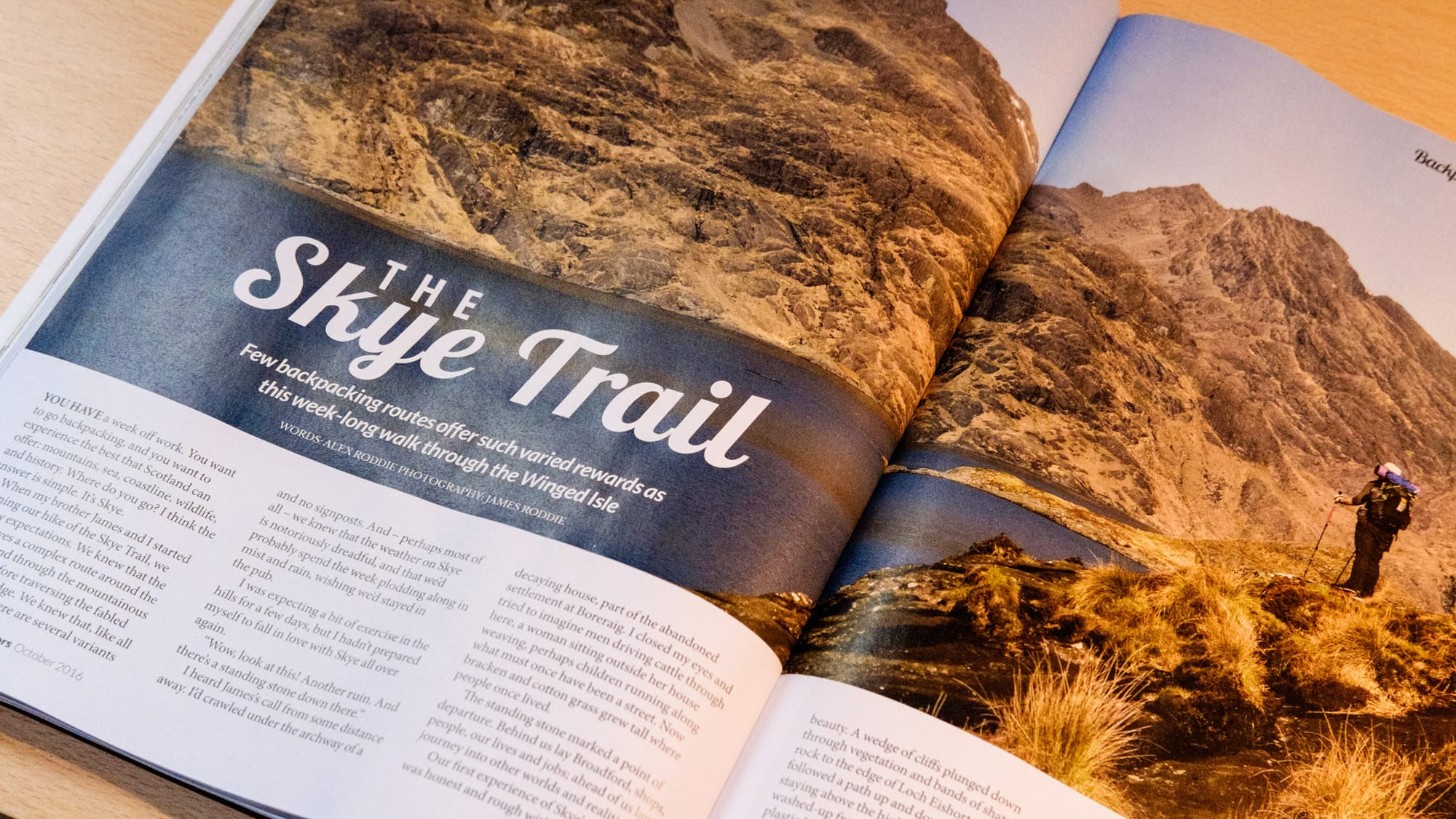
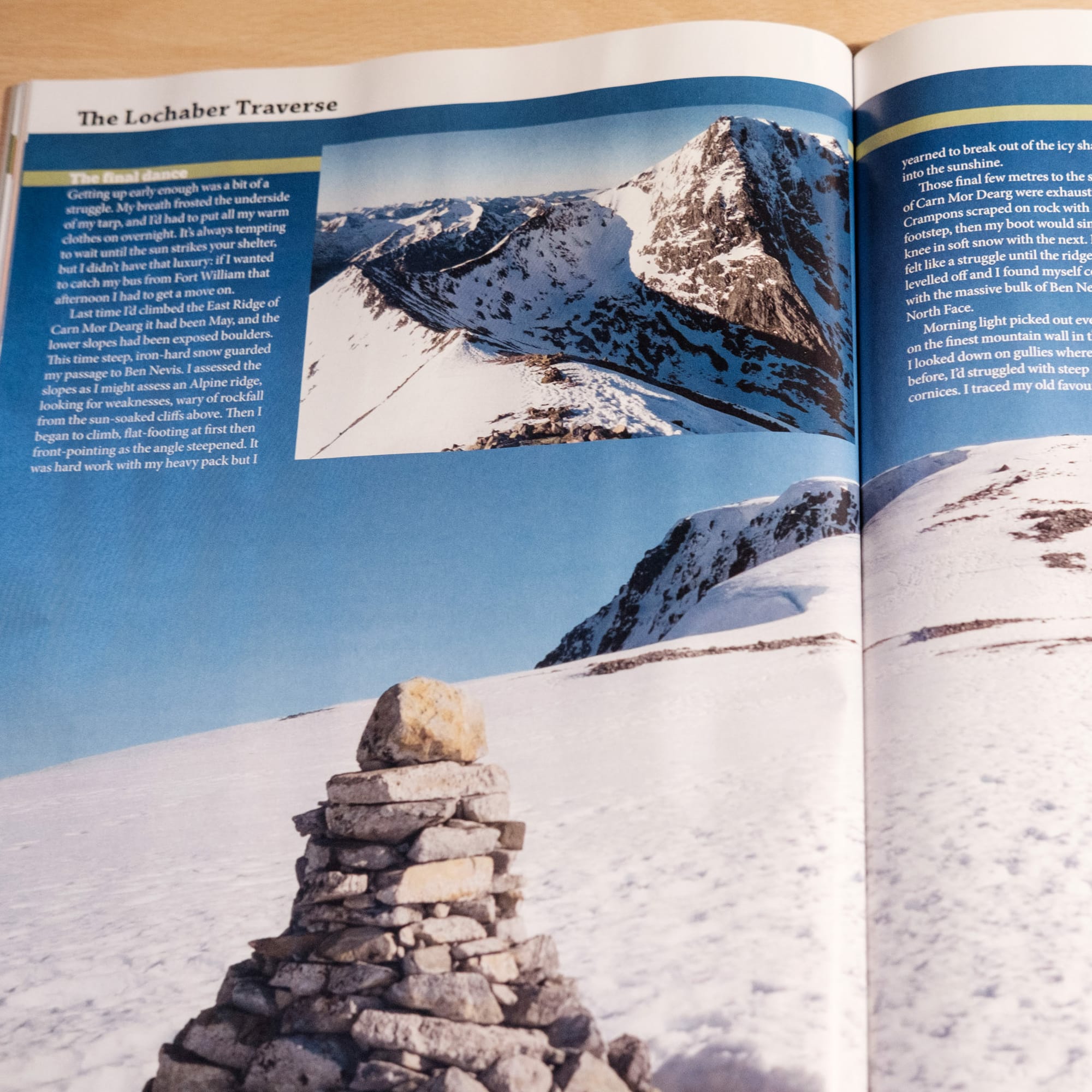
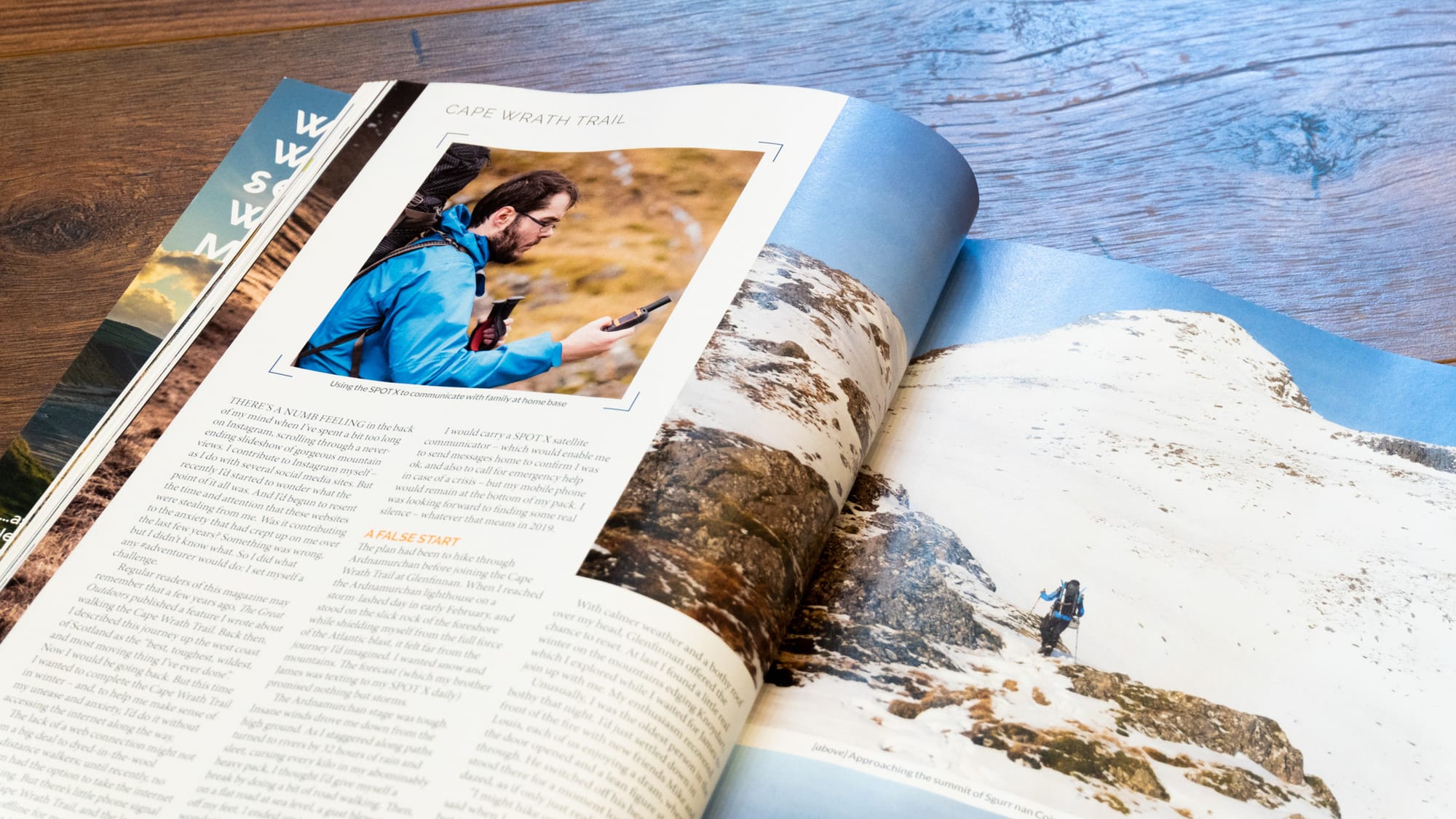
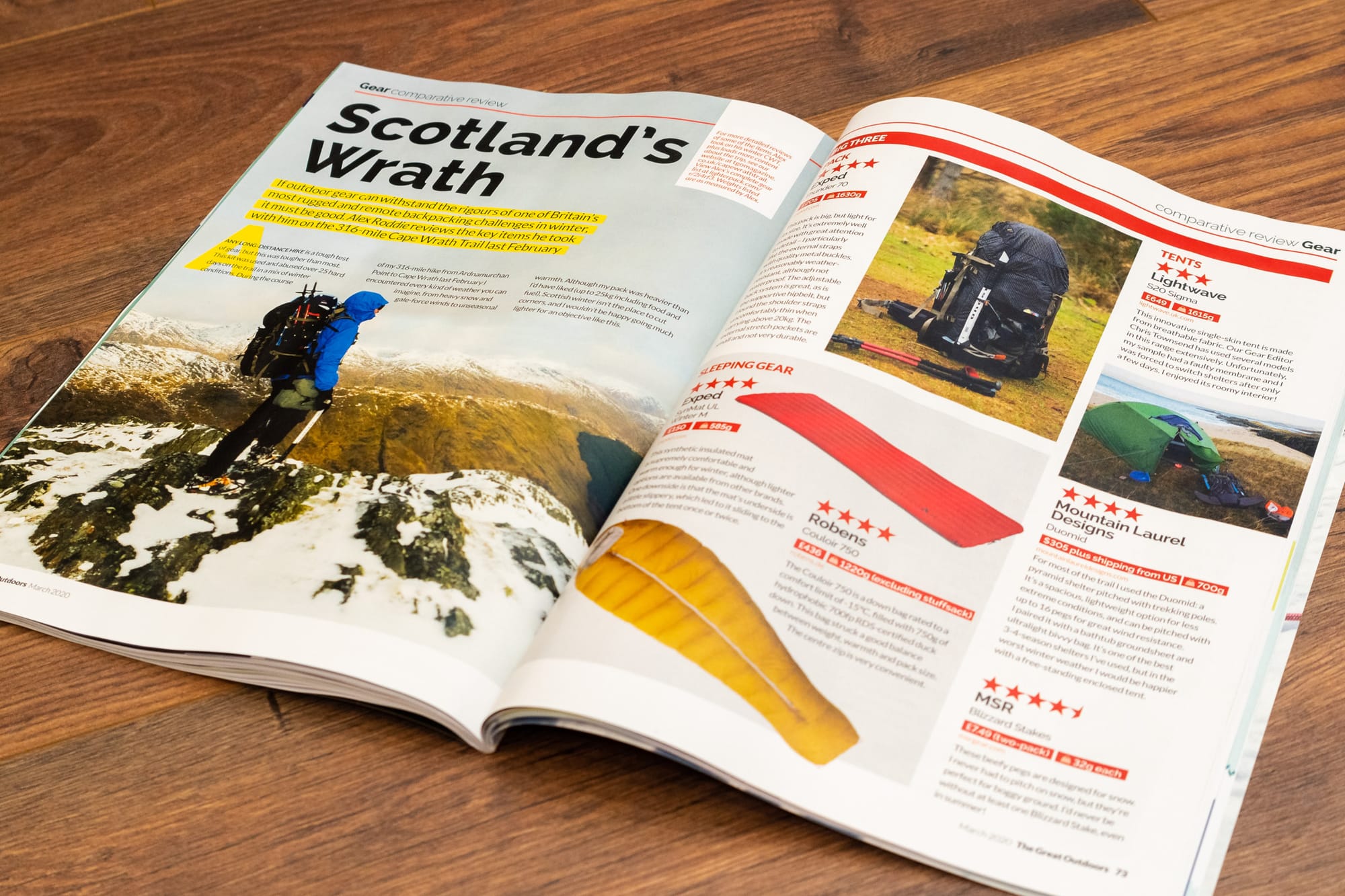
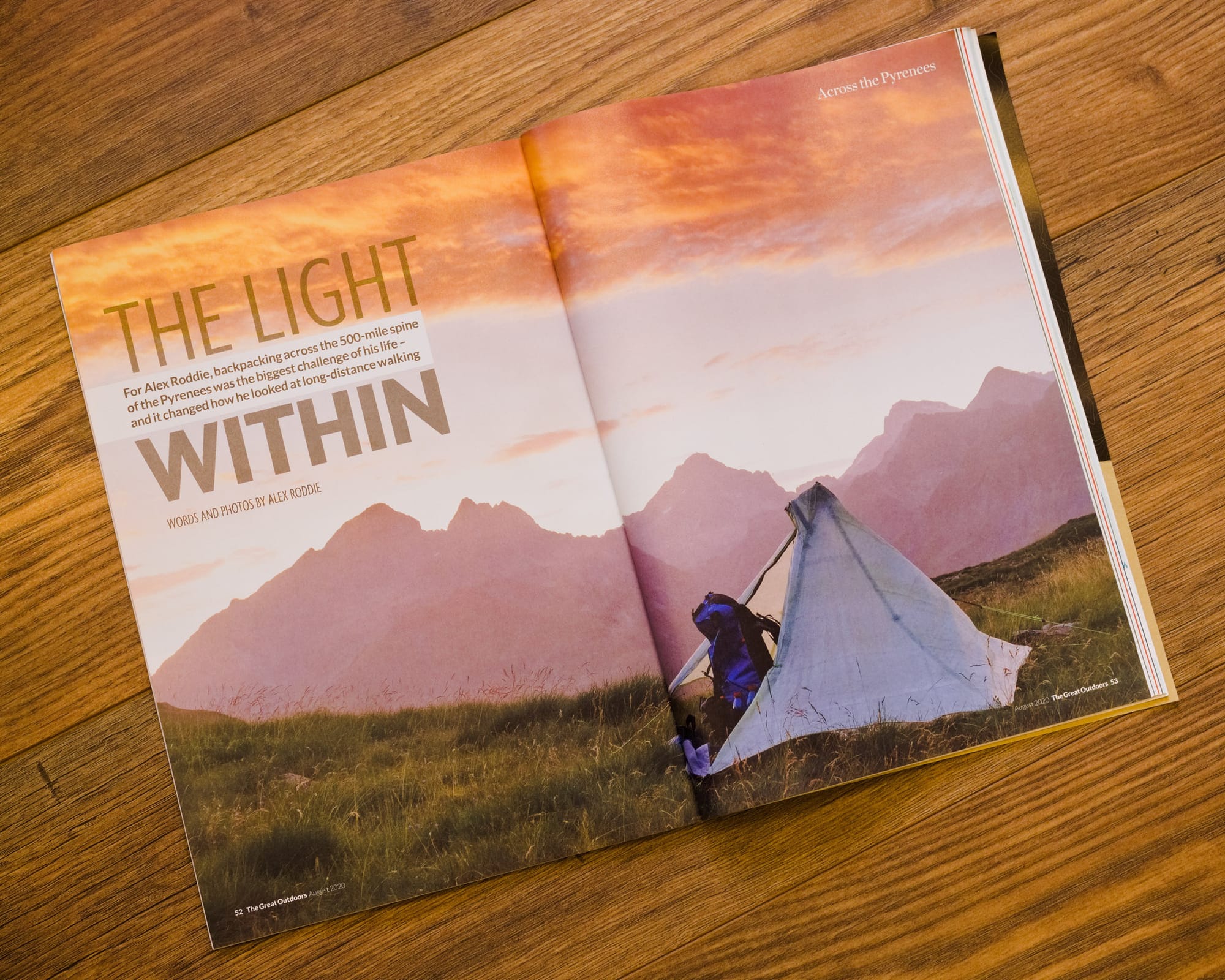
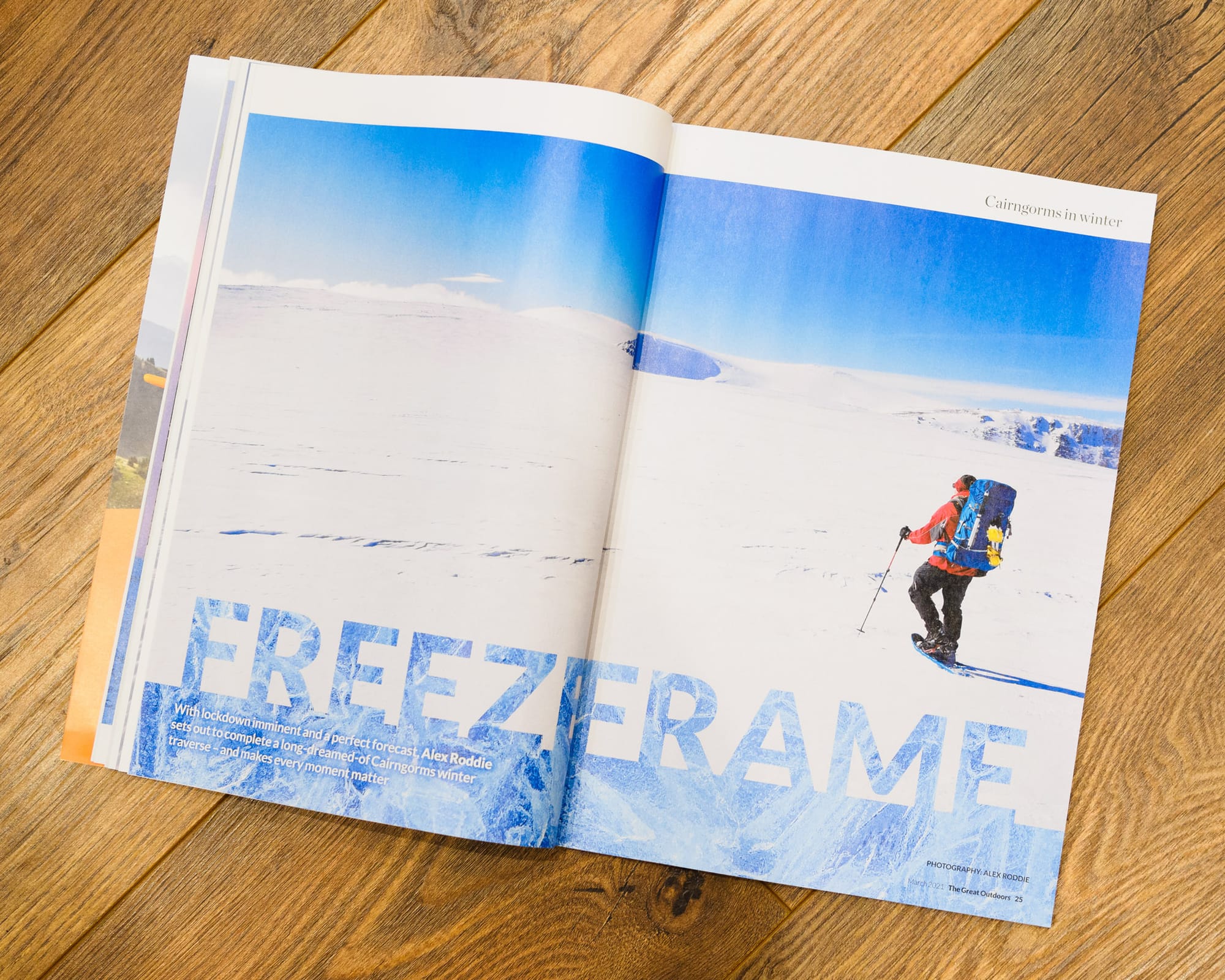
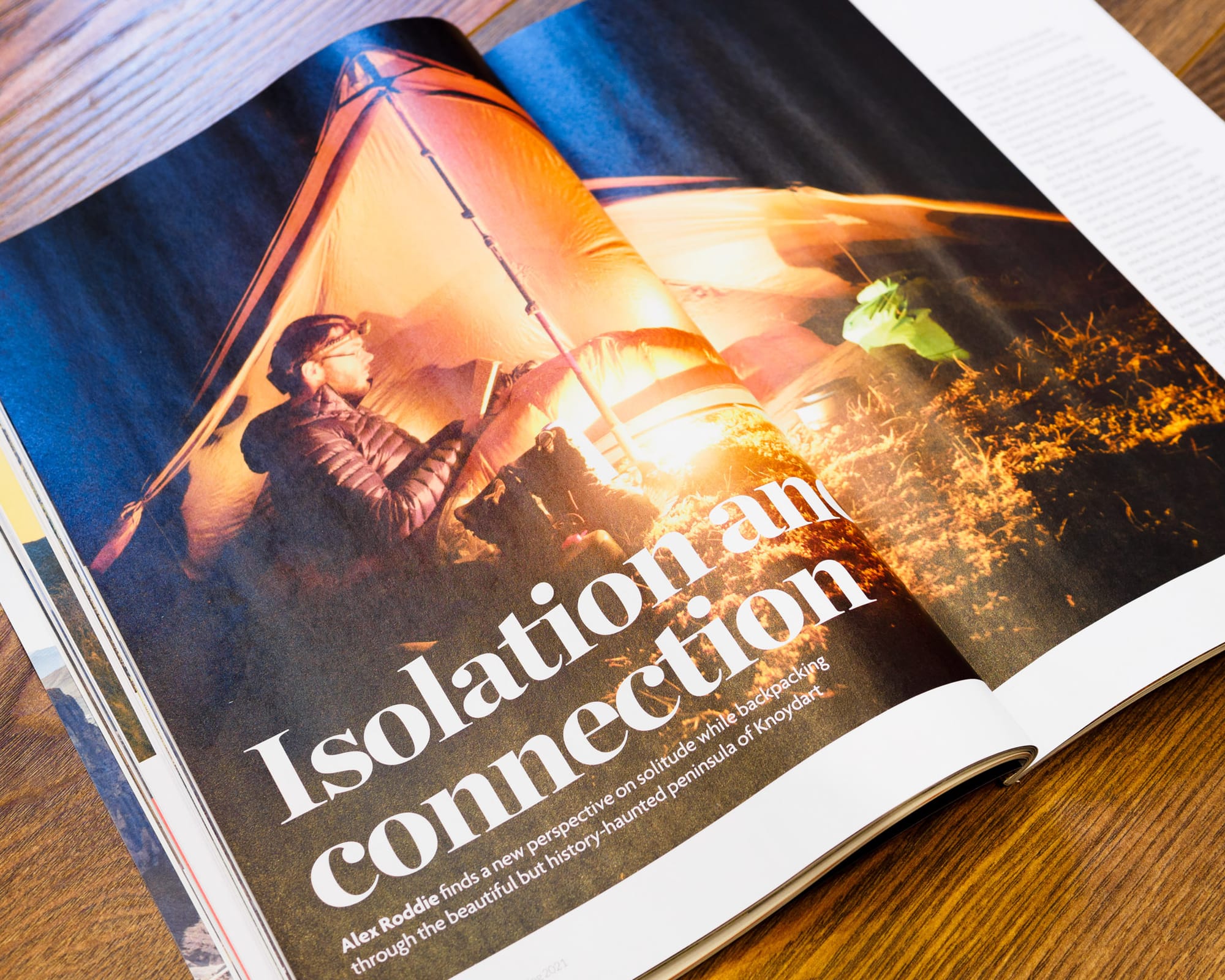
A few examples of my TGO work in print over the years
2016 is when I became a regular contributor in print, publishing articles on trails including the Tour of Monte Rosa and Skye Trail. I should be honest about something up front: the money I earned from these articles never came close to covering all expenses from these trips. Lesson number three: it's incredibly hard to earn a living as a travel (or outdoor) writer, and almost everyone has to rely on multiple income streams.
Of course, I was hiking these trails because I wanted to do so, not simply to earn money, and it can't be denied that those years building my platform were critical. But let's be clear. Unless you can successfully pitch multiple articles from a given trip, or you're lucky enough to land a brand-sponsored project, you are not going to break even. It also must be said that fees have remained static since at least 2016. This is a UK industry-wide problem, and I'm certainly not pointing the finger exclusively at TGO, but it's nevertheless true. It was hard making a living from this back then and it's significantly harder now.
My role at TGO has evolved many times. I've been on the gear-testing team for a while now, and have attended the Outdoor Trade Show with a TGO badge once or twice. I've deputised as editor more than once and was even interim editor for a short spell in 2019, helping to manage and produce the print magazine. I've been a judge for the annual Gear Awards and have single-handedly coordinated the Reader Awards several times.
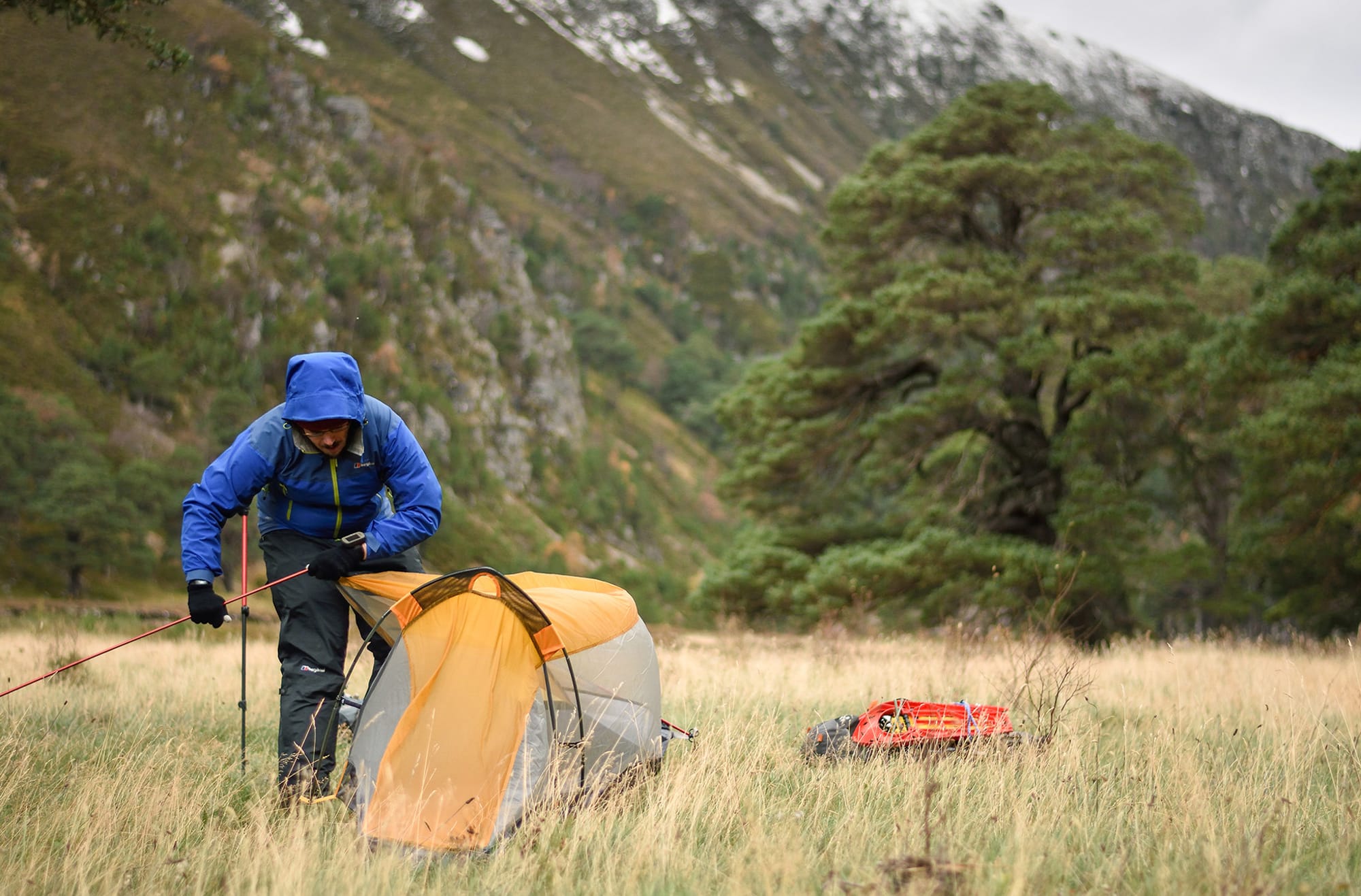
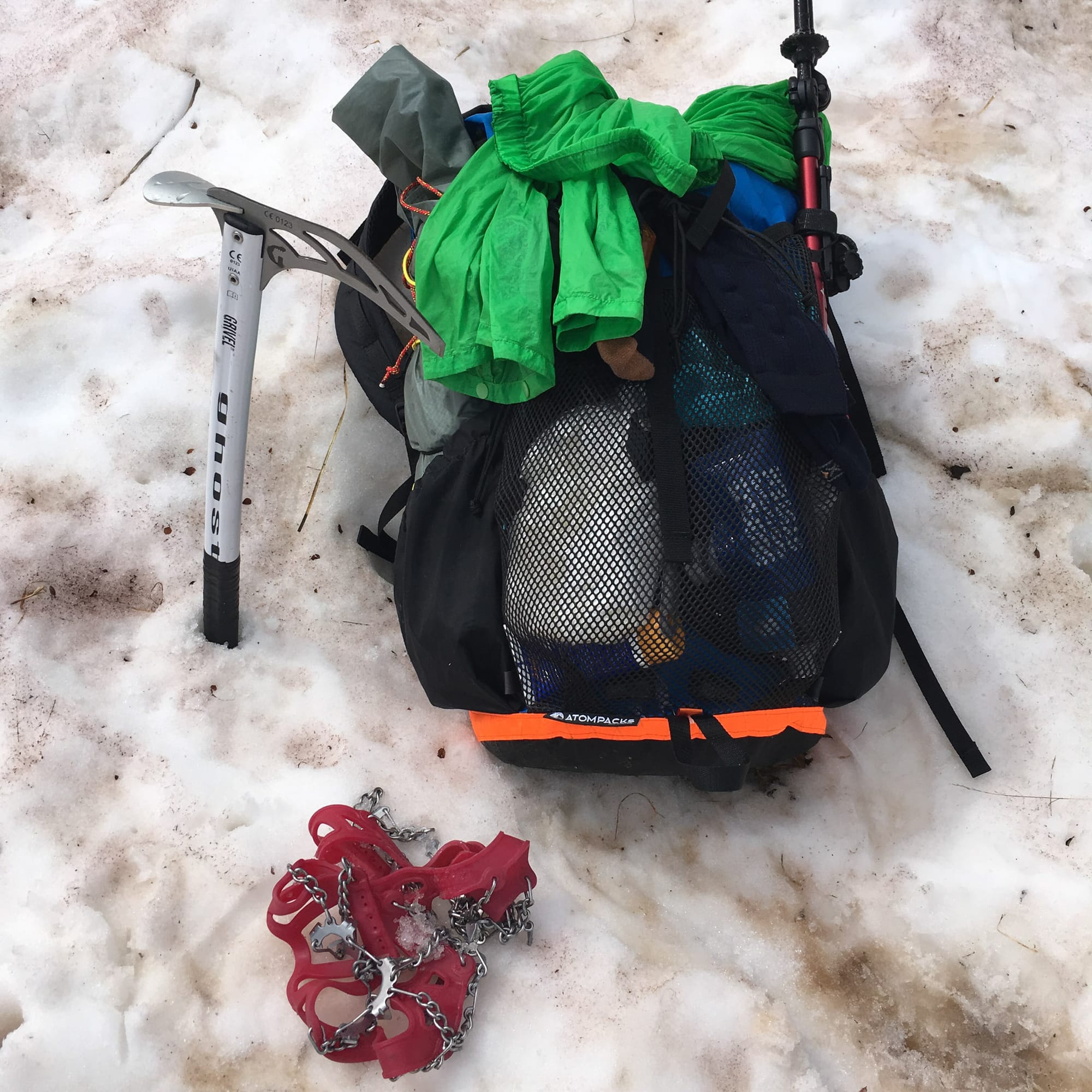
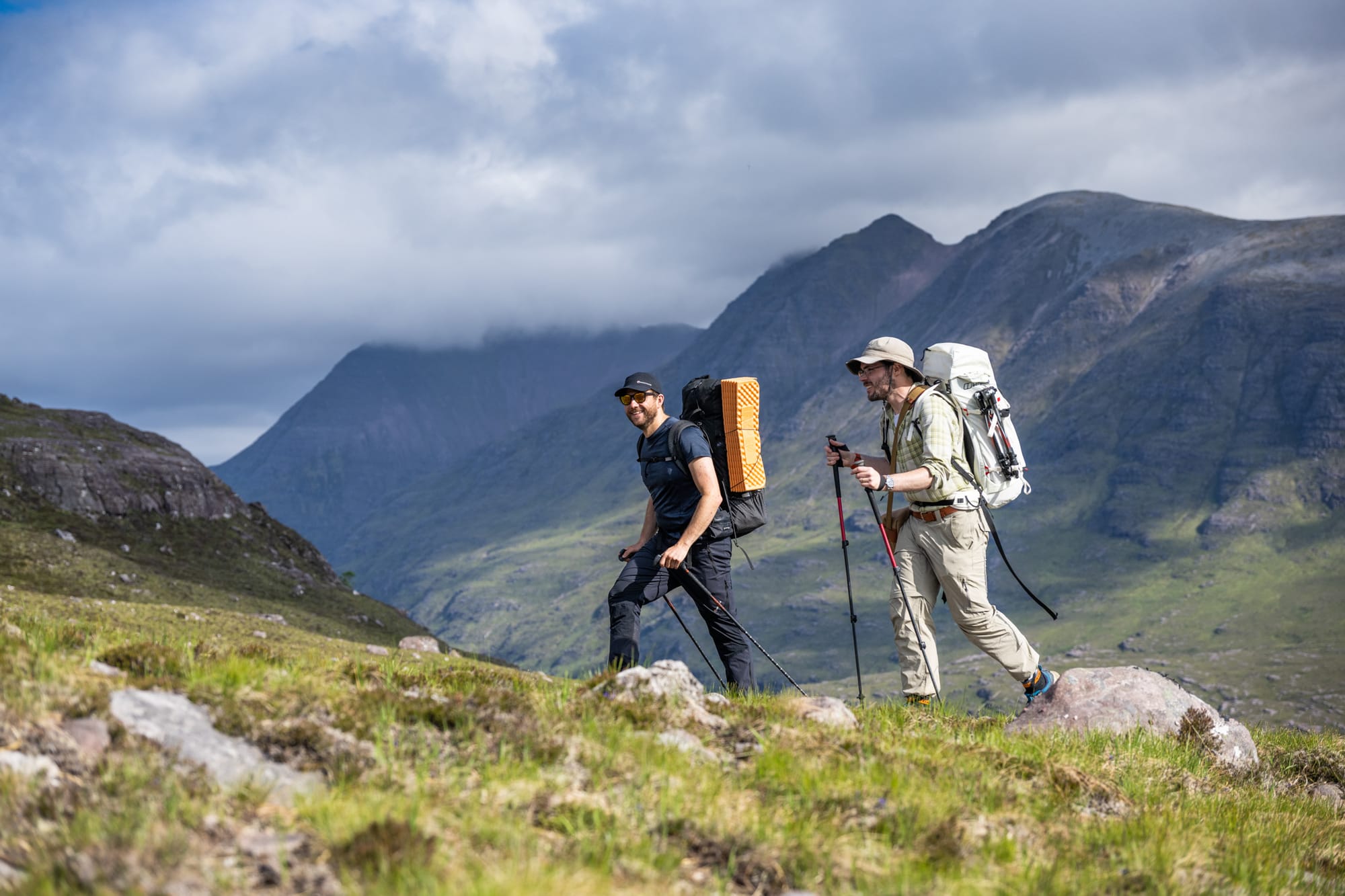
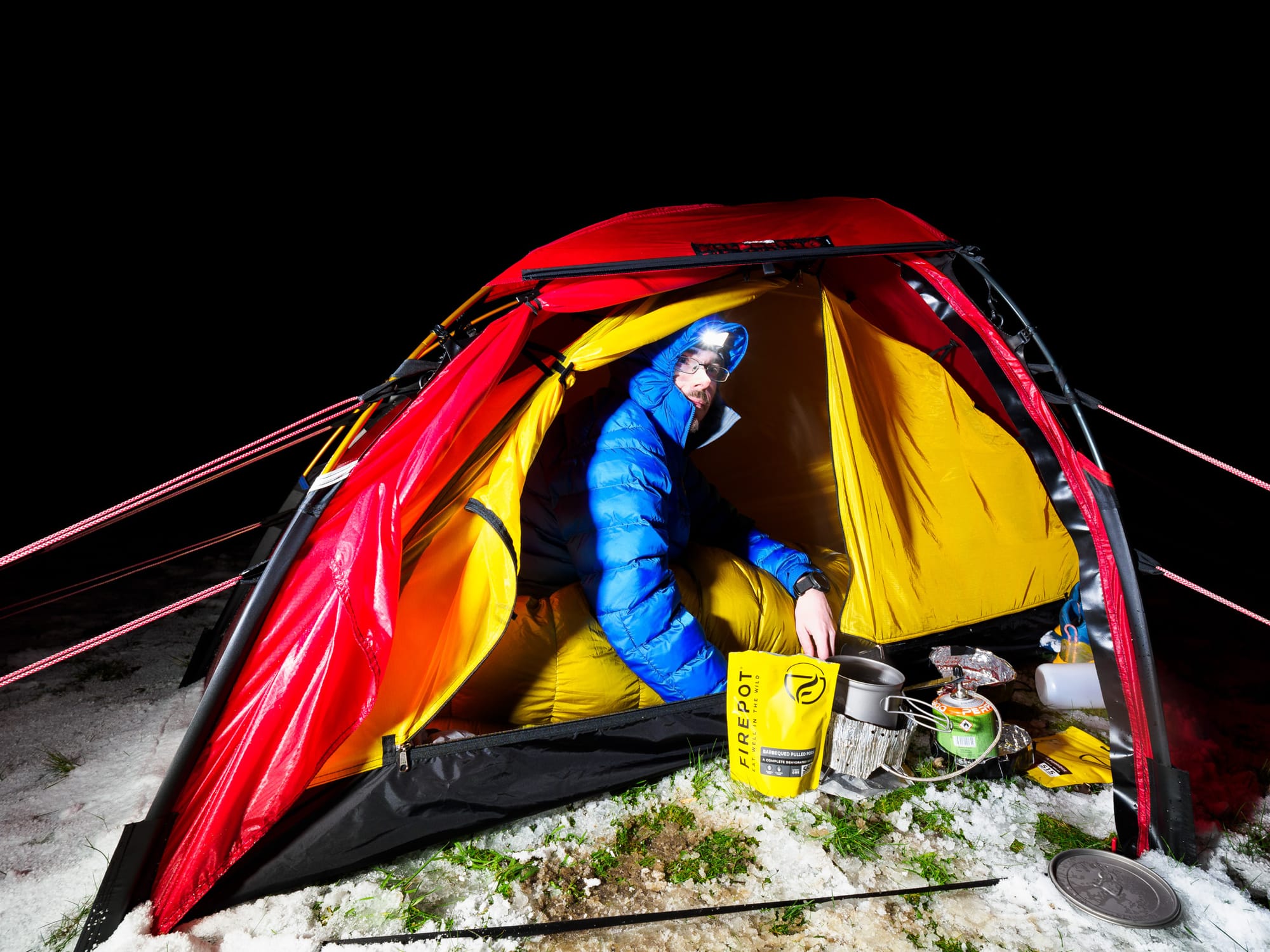
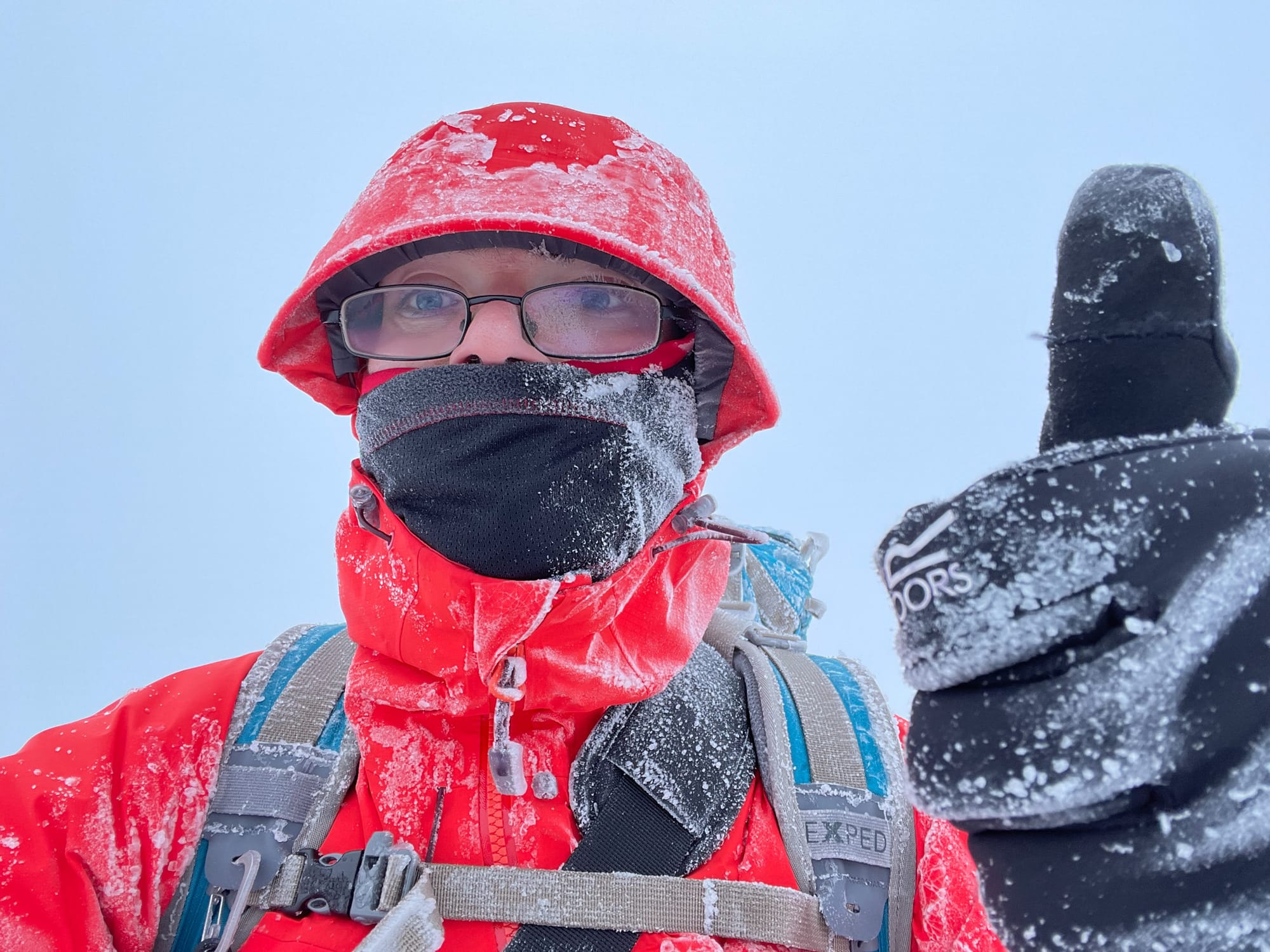
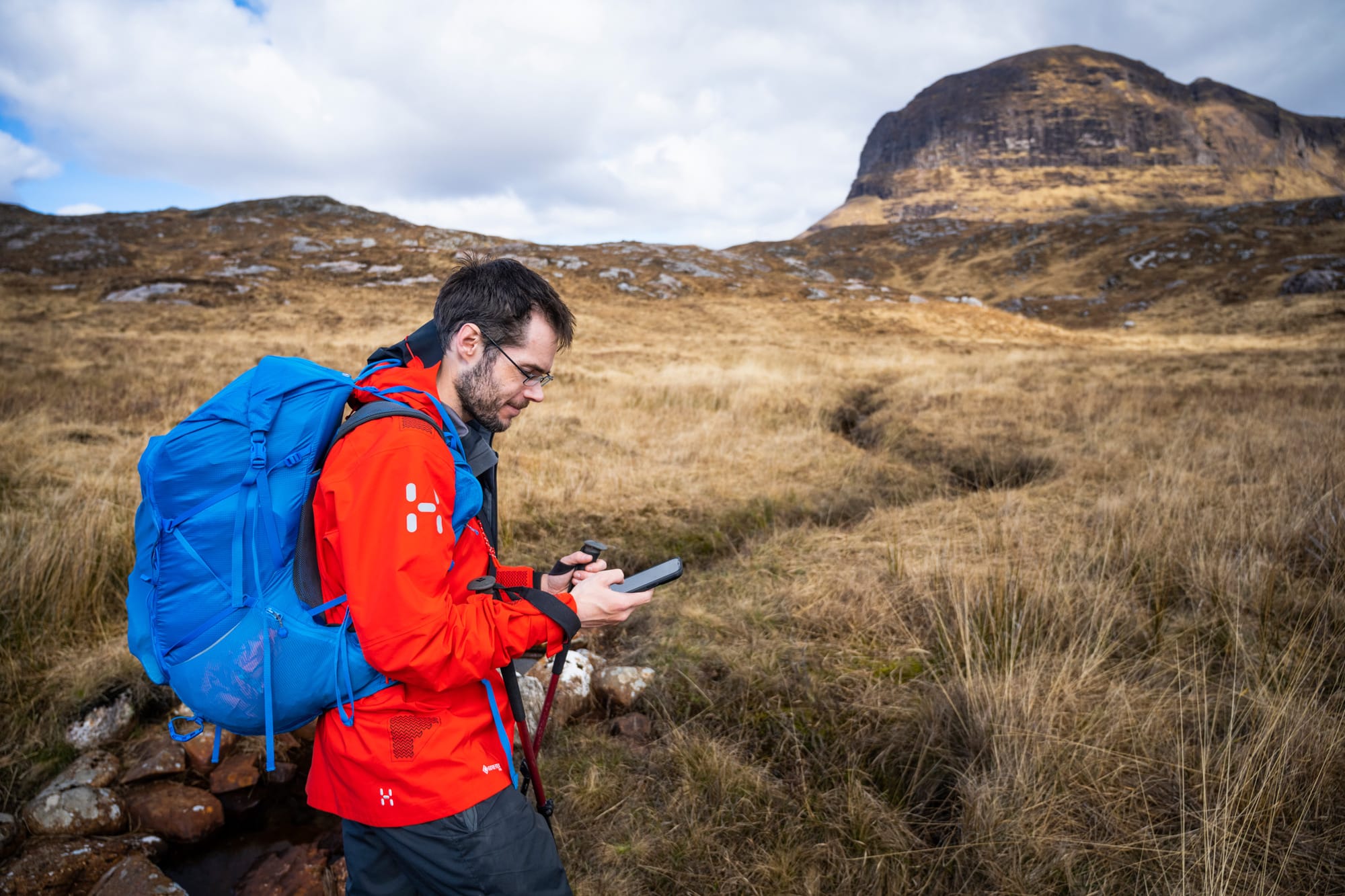
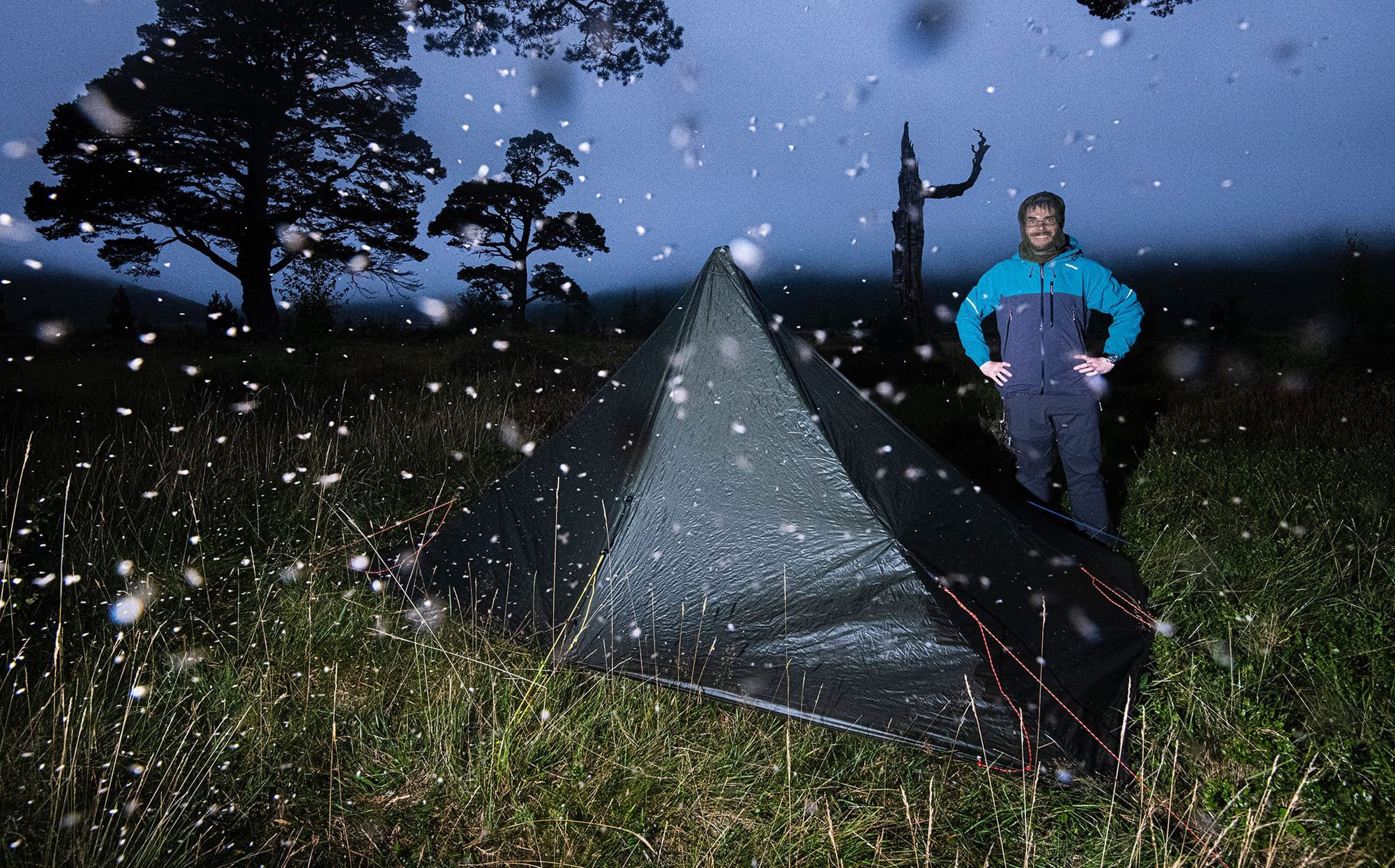
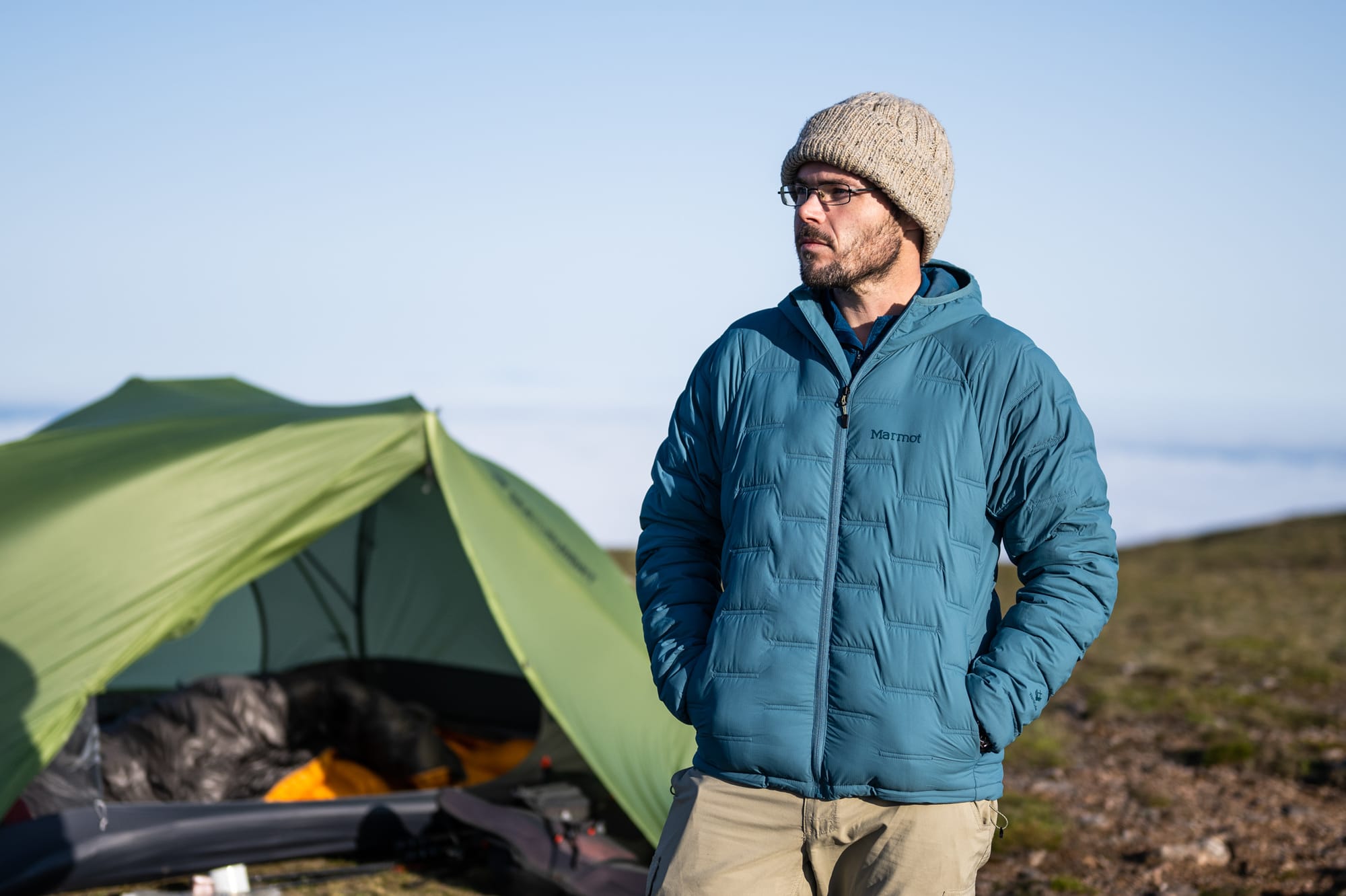
Moments as an outdoor gear tester. Some of these images © James Roddie
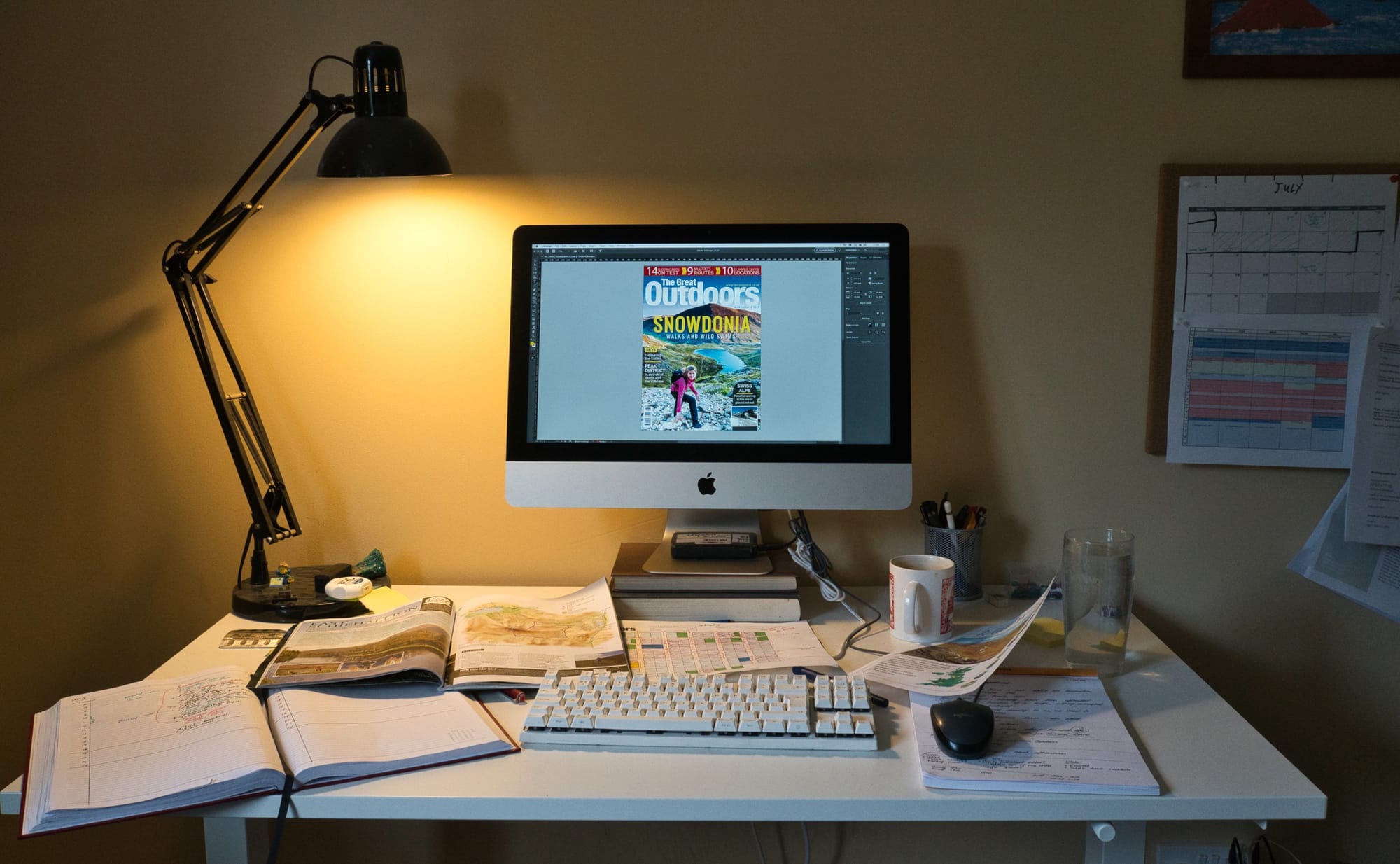
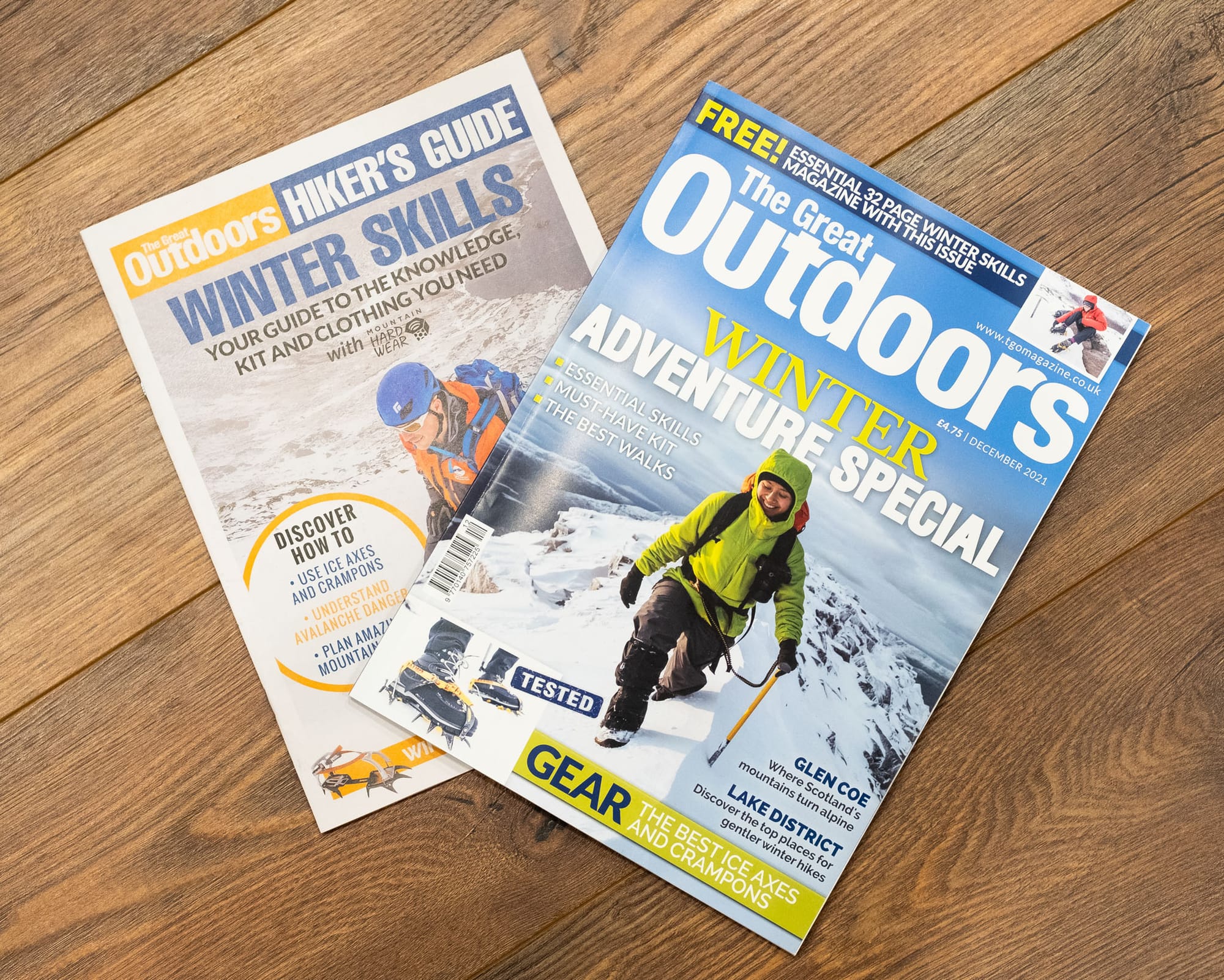
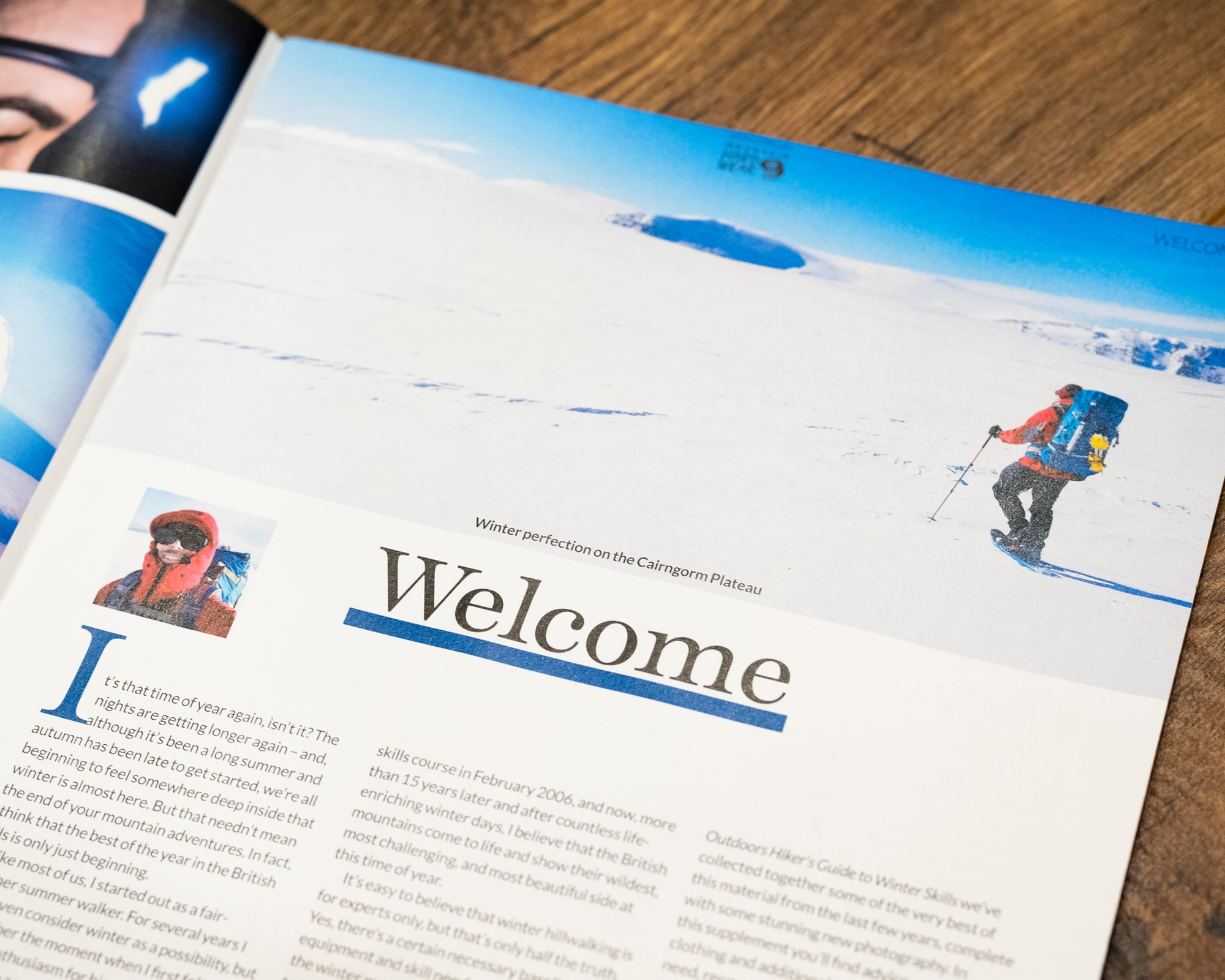
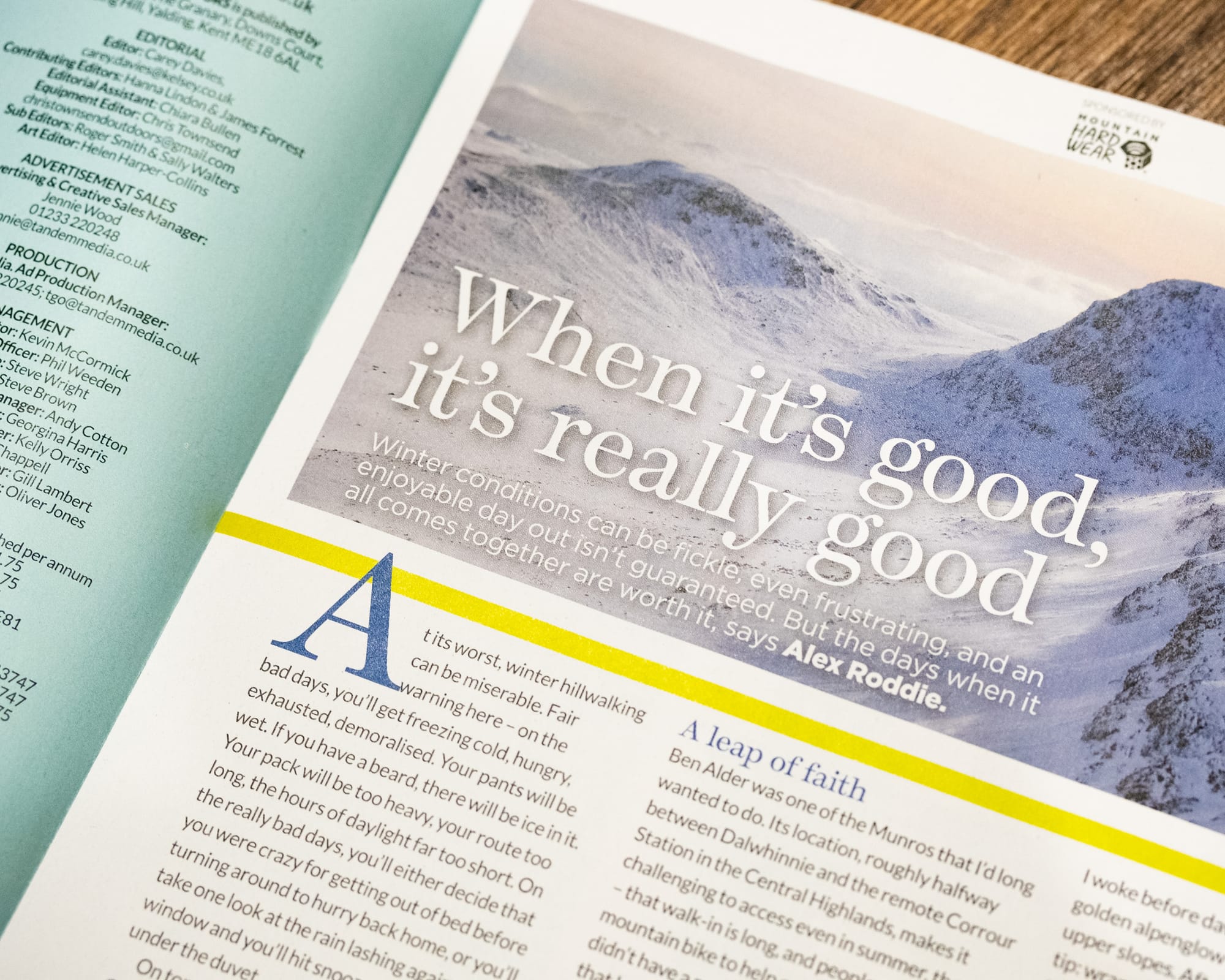
Working on the print side of TGO
In 2017 I took on the position of online editor, a part-time job I held until 2019. This was another valuable chunk of regular work for me that really helped to keep the whole business sustainable. However, this was a difficult period in my life, and I struggled in the role. My dad had terminal cancer, and my relationship with social media – long a complicated one – rapidly deteriorated, largely because I now had a job that required using Twitter for an hour or two a day.
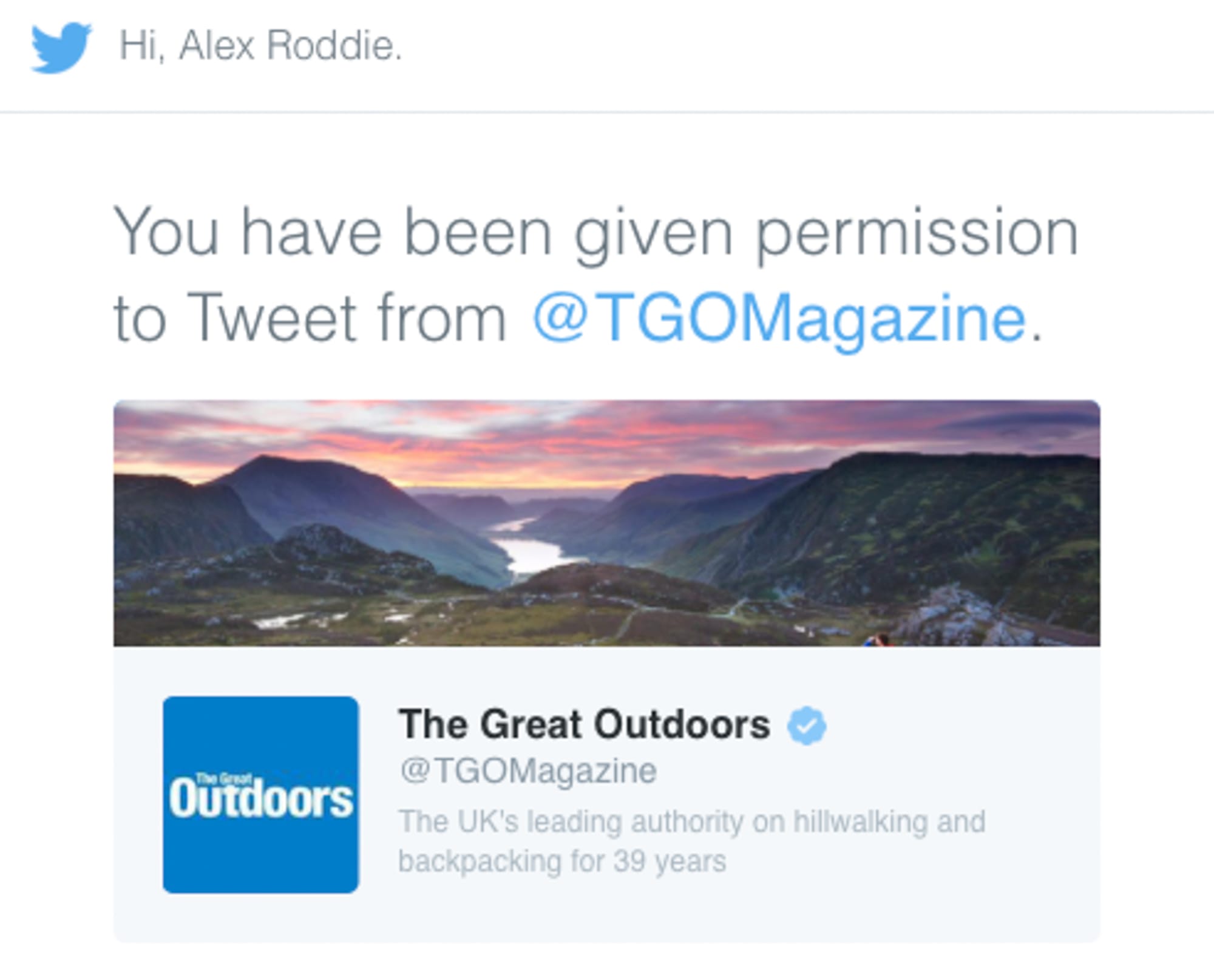
The 2019 burnout
By early 2019, I was floundering. As I wrote in my book The Farthest Shore:
When I logged in to Twitter, I saw dystopian headlines and political division, and yet Twitter was where I found new clients, found readers for my work, made genuine connections. I wrote in my diary that I was heading towards a nervous breakdown. Something had to change.
My work-life balance was in an atrocious state. For the record, this was not TGO's fault. This was entirely an Alex thing. I'd started to become dimly aware that my brain was not the same as other people's brains, and that I had already begun to subconsciously develop coping mechanisms that allowed me to function in the career I'd built for myself. I kept email and social media off my phone, and had a shortcut to quickly turn my devices to greyscale mode – an aid for focus. Countless more little tricks. But ultimately they were all sticking plasters.
The worst part of it all? Even with all this stress and anxiety, slogging my guts out and failing to erect barriers between work and personal life, berating myself for not being efficient or resilient enough, my financial situation was far from impressive. I was working too much and not earning enough. File this under 'how not to freelance 101'.
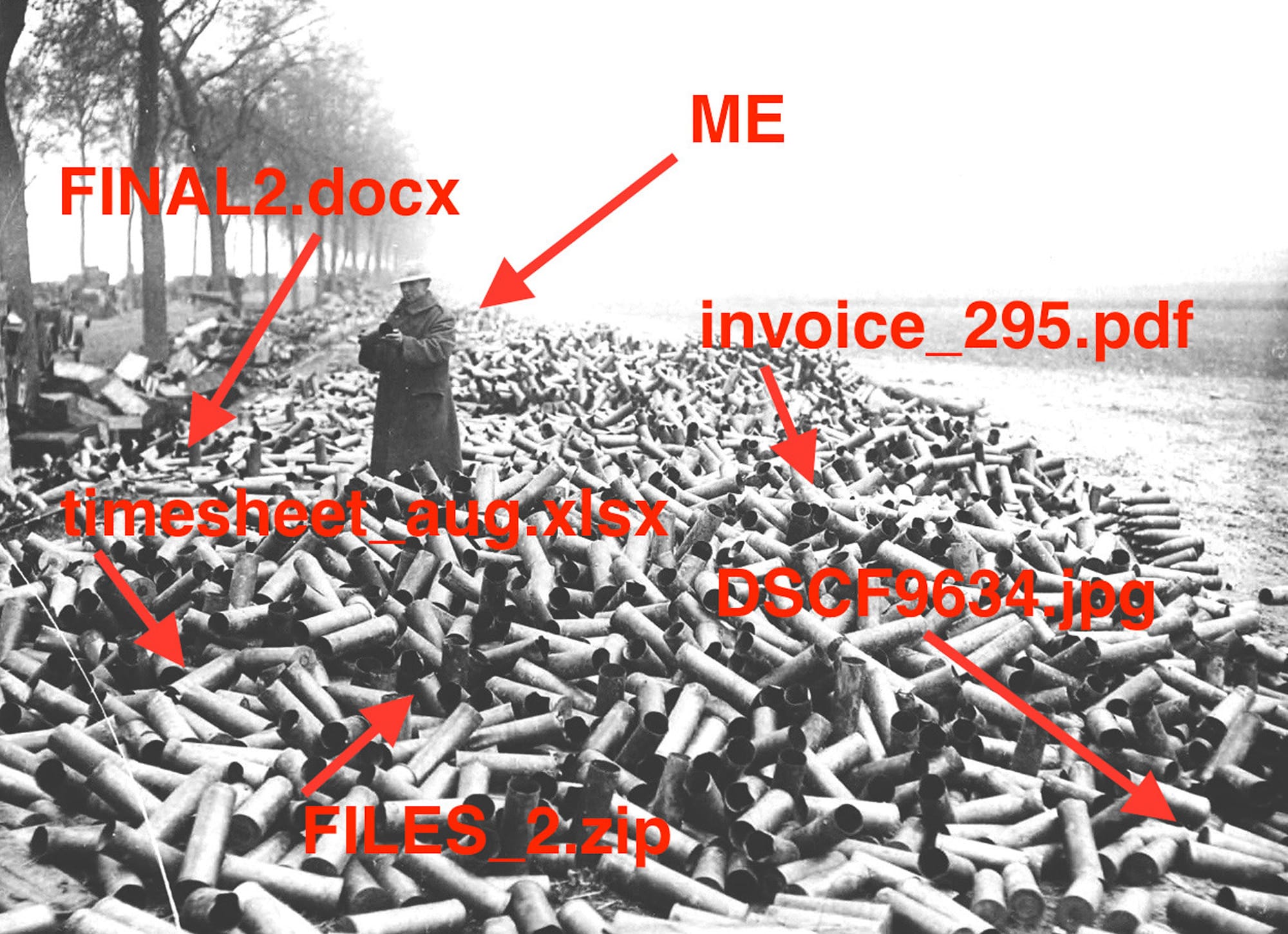
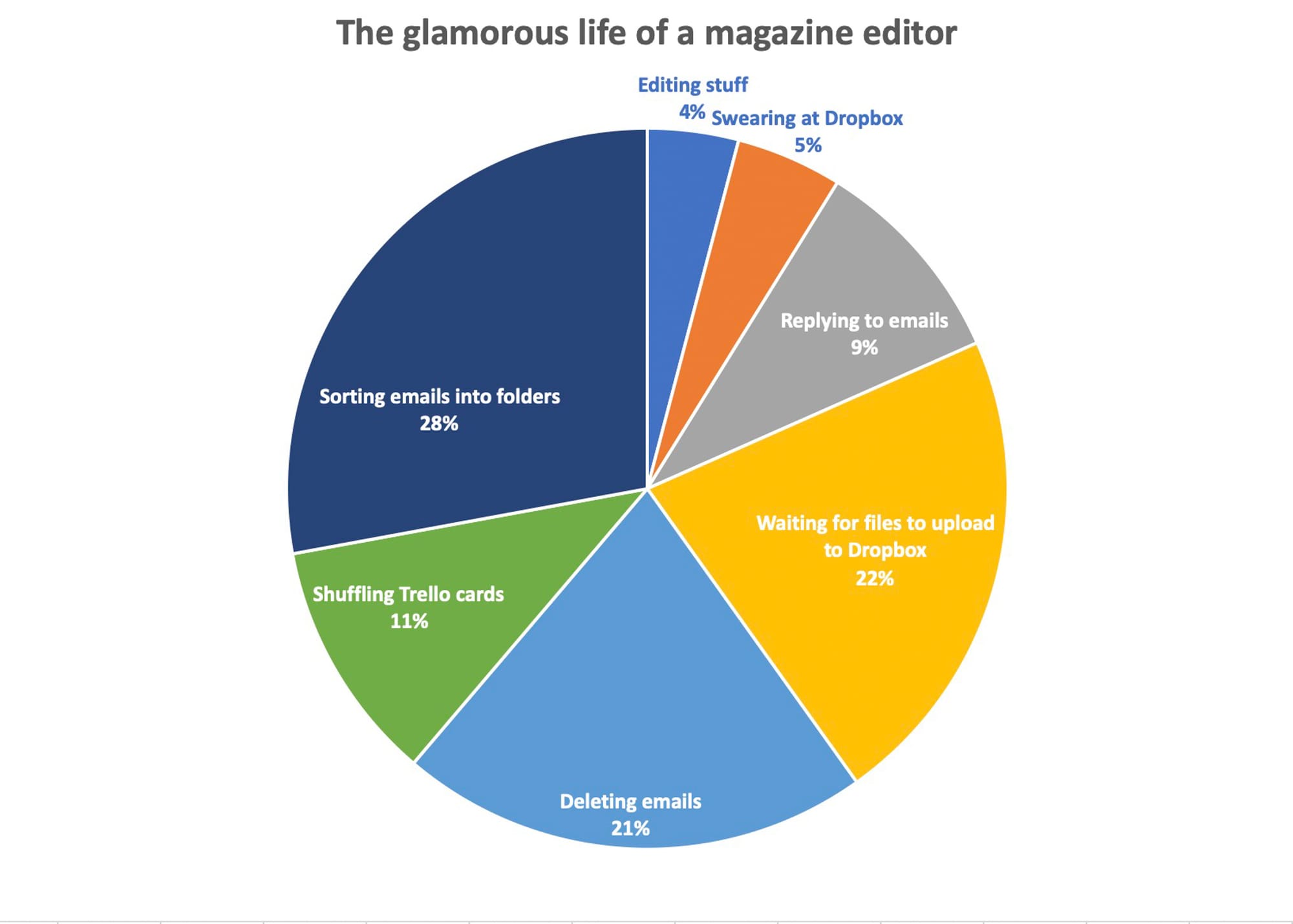
I made these graphics in May 2019. They pretty much sum up my state of mind at the time
While hiking the Pyrenean Haute Route in summer 2019 I made the decision to step down as online editor. I couldn't cope in this role any more. The deluge of tweets and emails felt like knives going into my brain. As it turned out, the timing could not have been worse from TGO's point of view; Carey Davies had just stepped in as editor, and he didn't thank me for abandoning him during a complicated transition! But the truth is that I simply couldn't hang in there for another few months.
Lesson number four: in the freelance world, you have to be responsible for your own mental health and well-being.
Since 2019, I've remained a regular contributor at TGO and have worked closely with the editorial team on many projects. I think it's now been a run of almost two years in which I've had something in every single print issue. However, I haven't held a staff role since 2019, and I'm content being a member of the gear team and freelance contributor. Under Francesca Donovan and David Lintern the magazine has been going from strength to strength, and I'm really glad to see it offer a platform to such a wealth of new and diverse voices.
Into the 2020s
The pandemic had a relatively small impact on my work. Things tailed off a bit at Sidetracked and TGO for a few months, but soon bounced back, and I'd just signed a contract to write my first coffee-table book with gestalten: Wanderlust Europe. In 2020 I was also writing The Farthest Shore, the book about my 2019 winter Cape Wrath Trail. My career as a traditionally published author had begun.
Over the coming years I would work on three Wanderlust books with gestalten. These were the first books I'd written that could be considered financial successes. The books continue to add a small but healthy percentage to my income every year. The Farthest Shore came out in 2021.
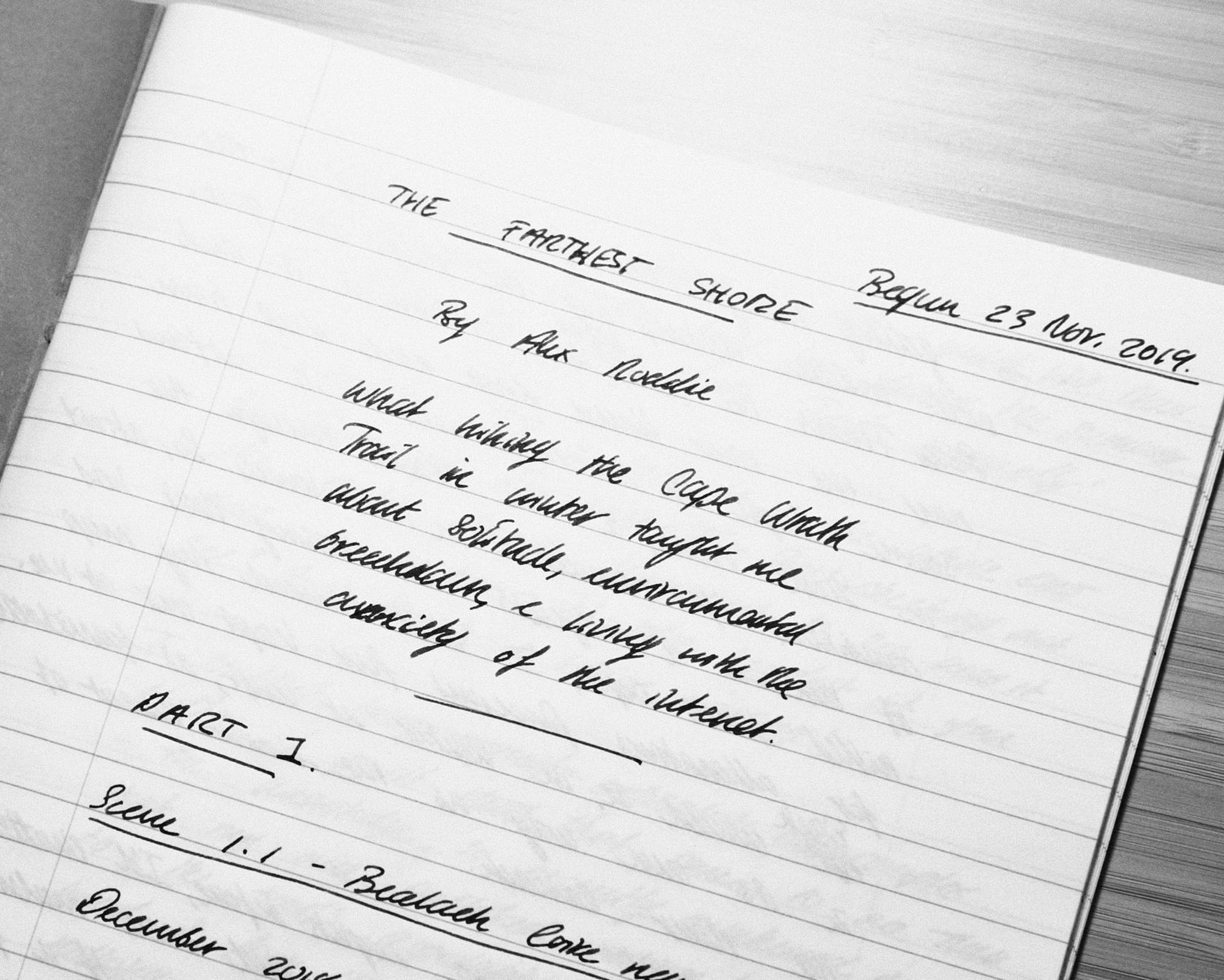
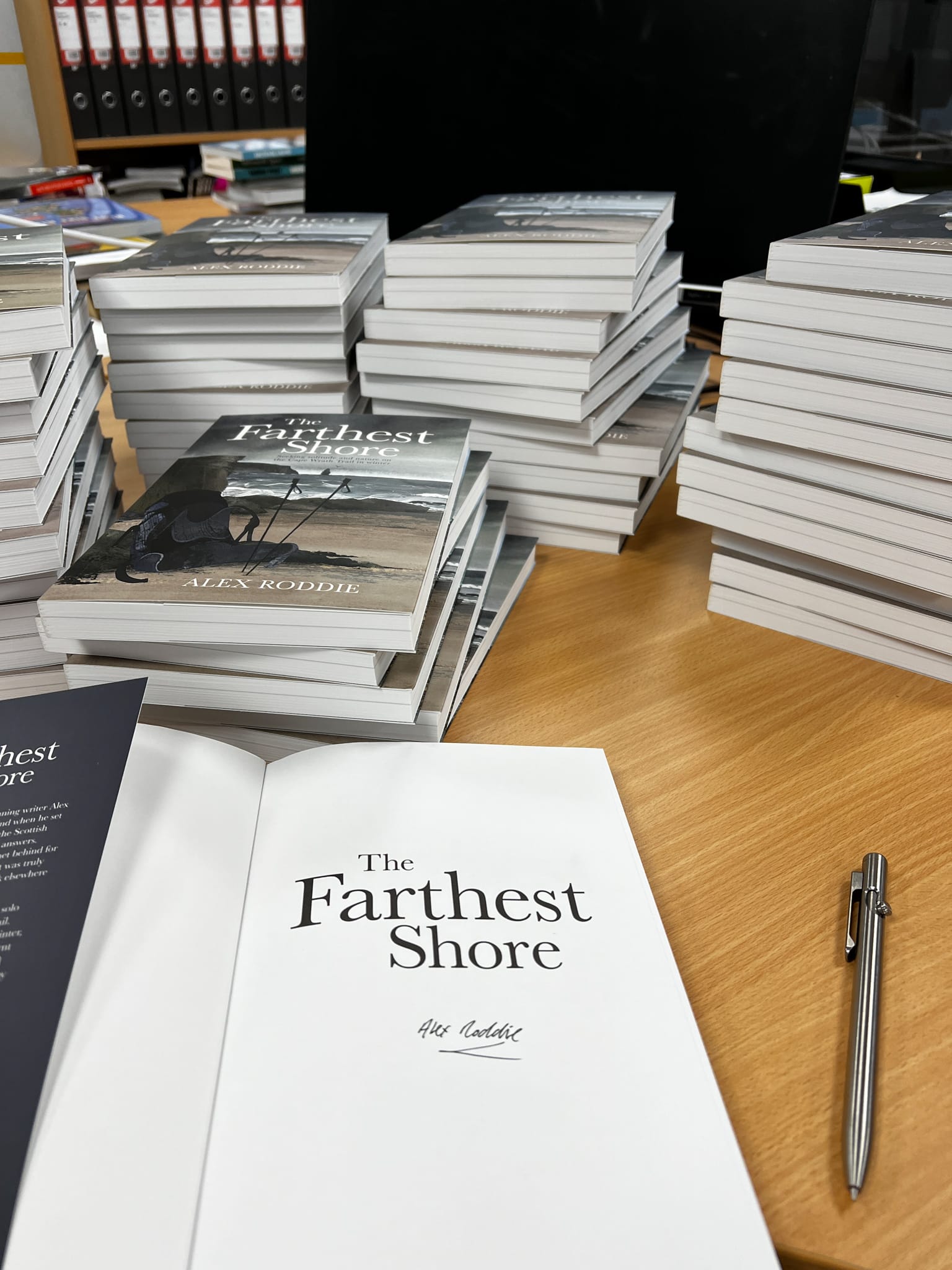
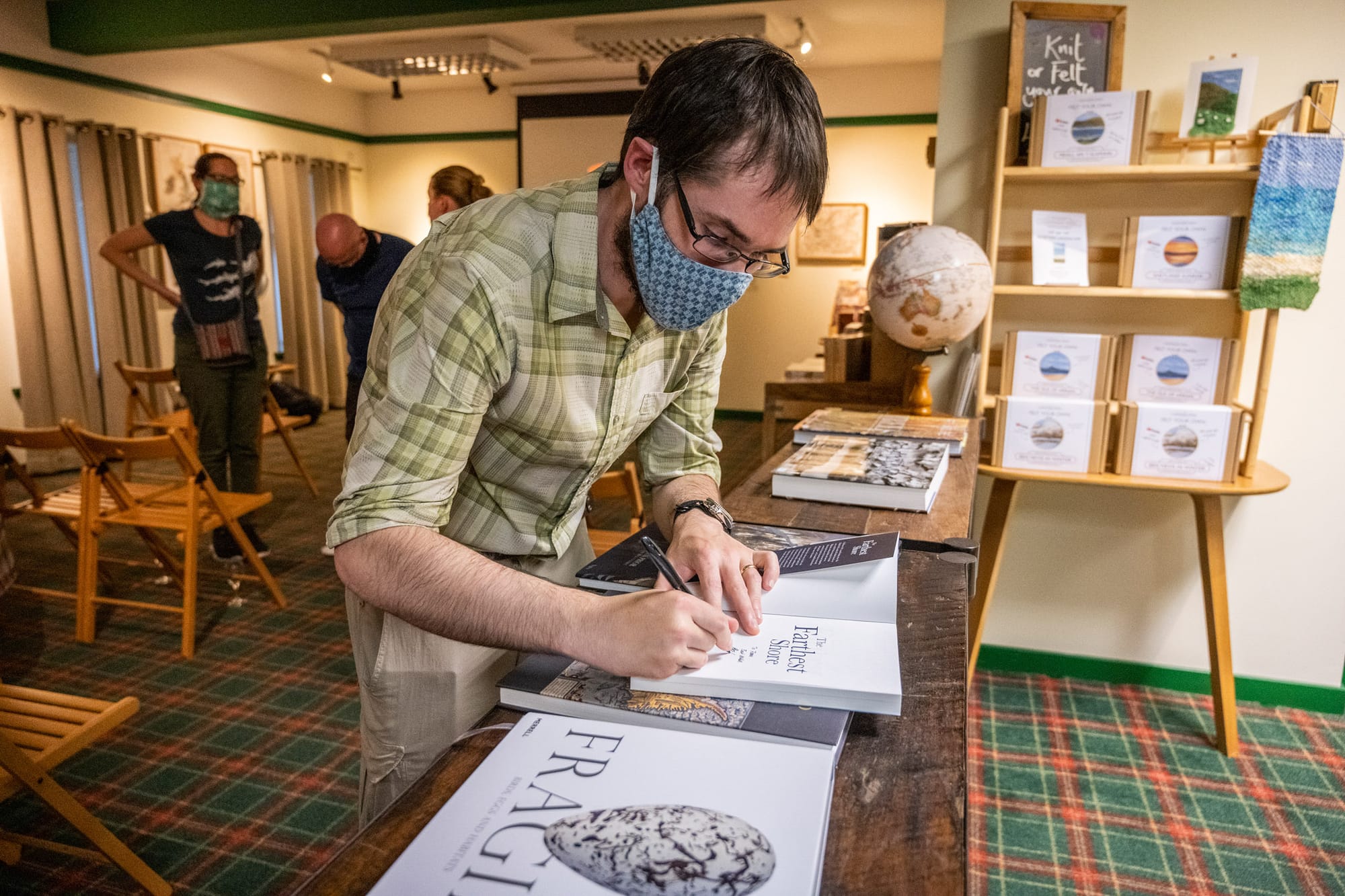
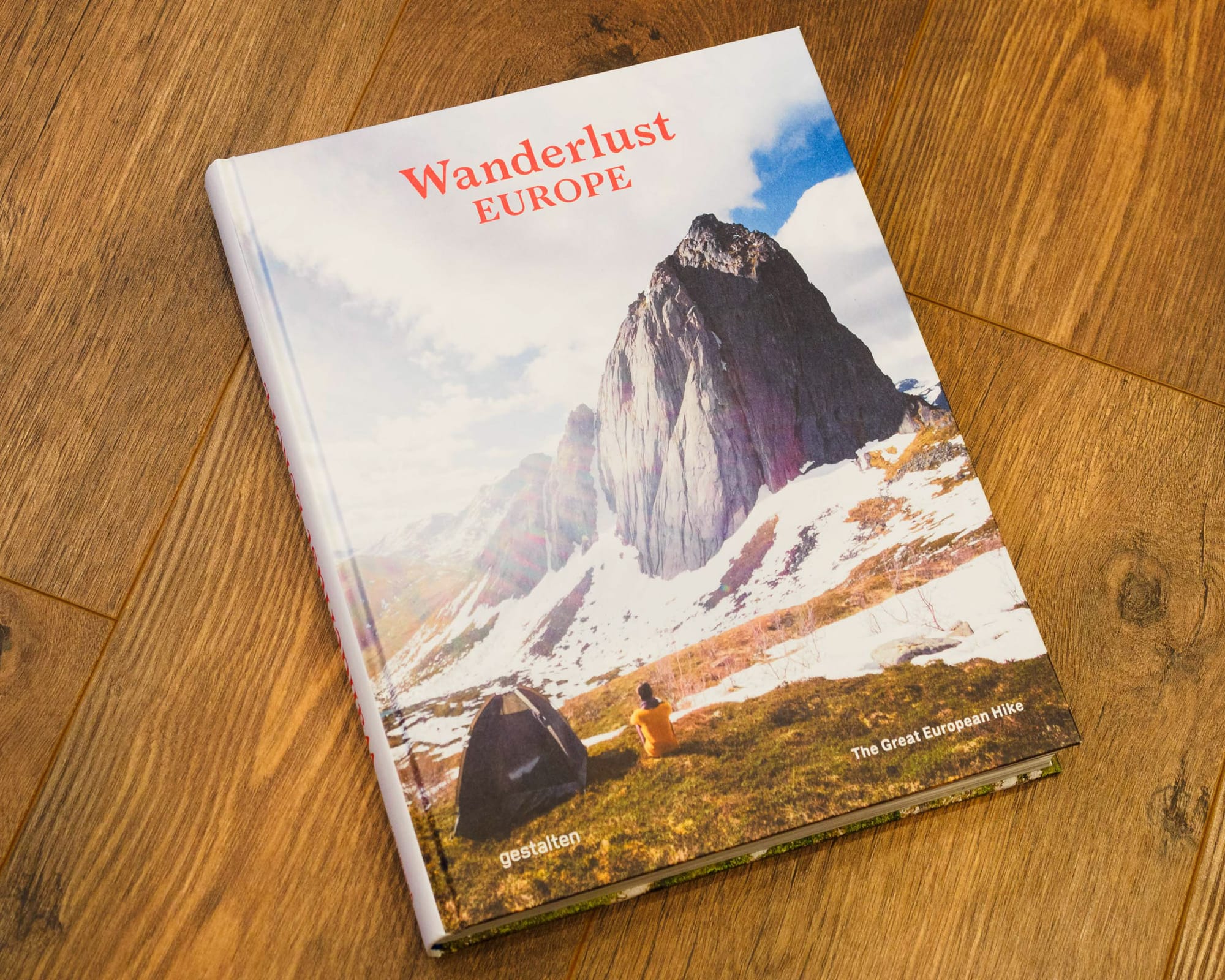
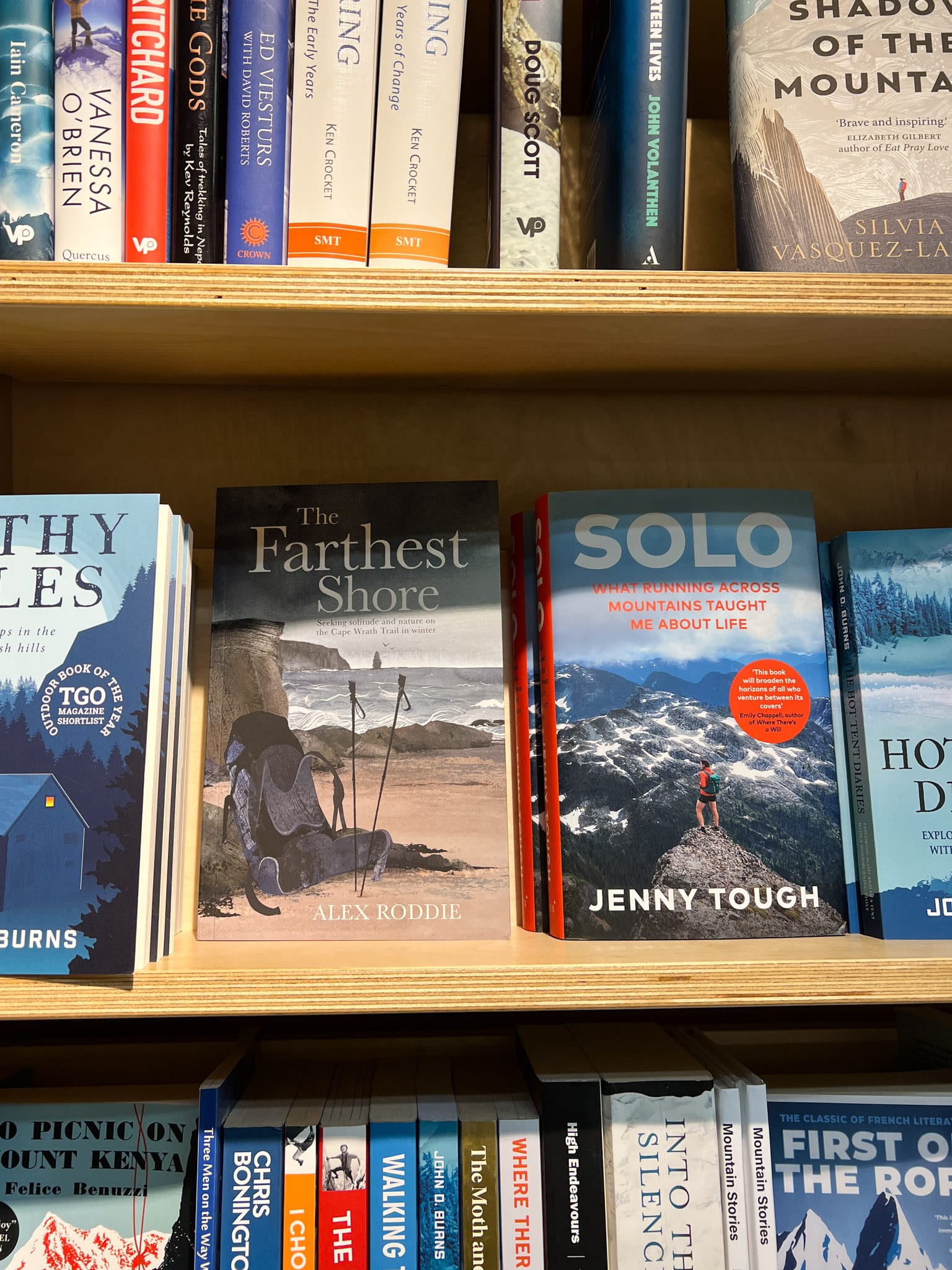
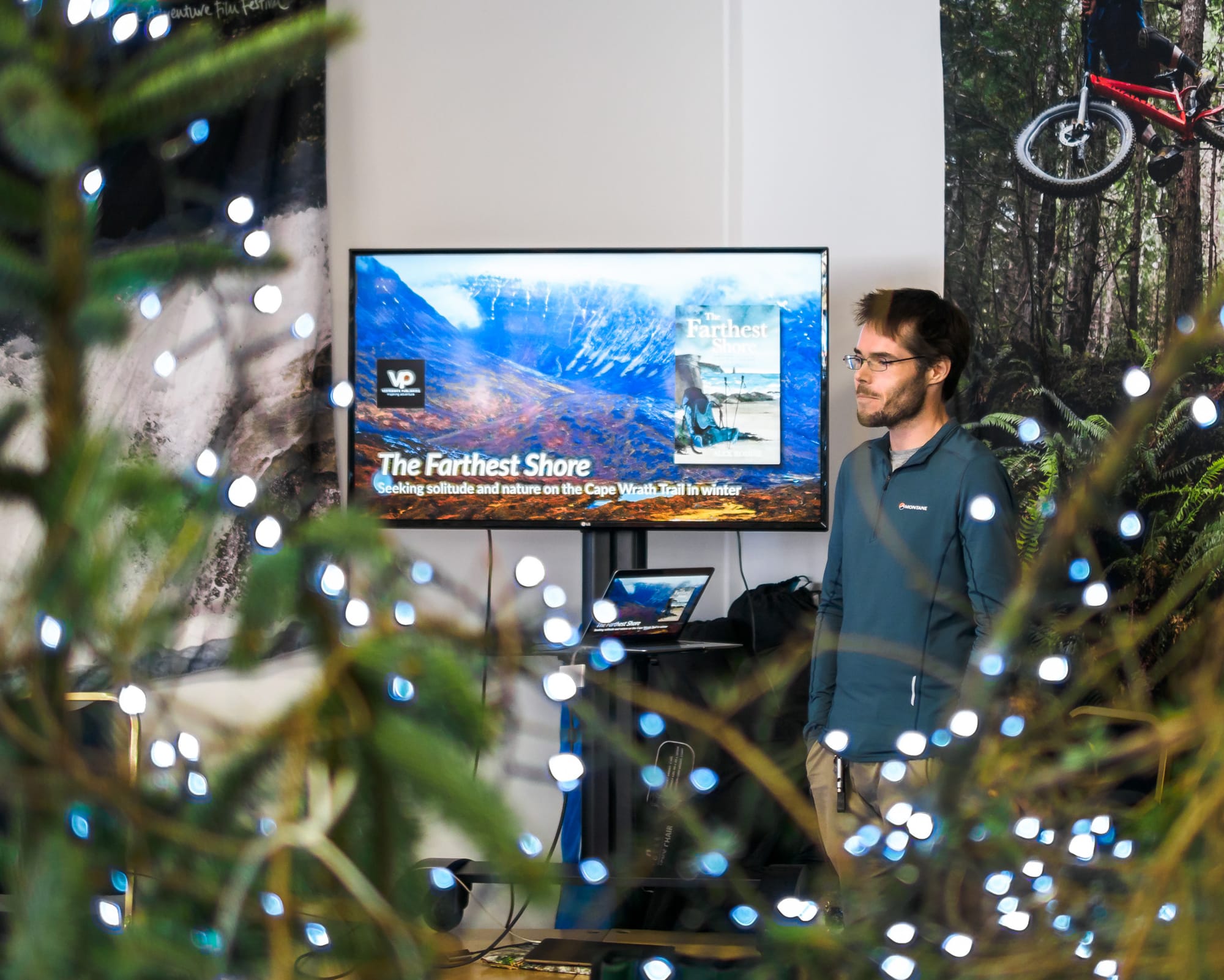
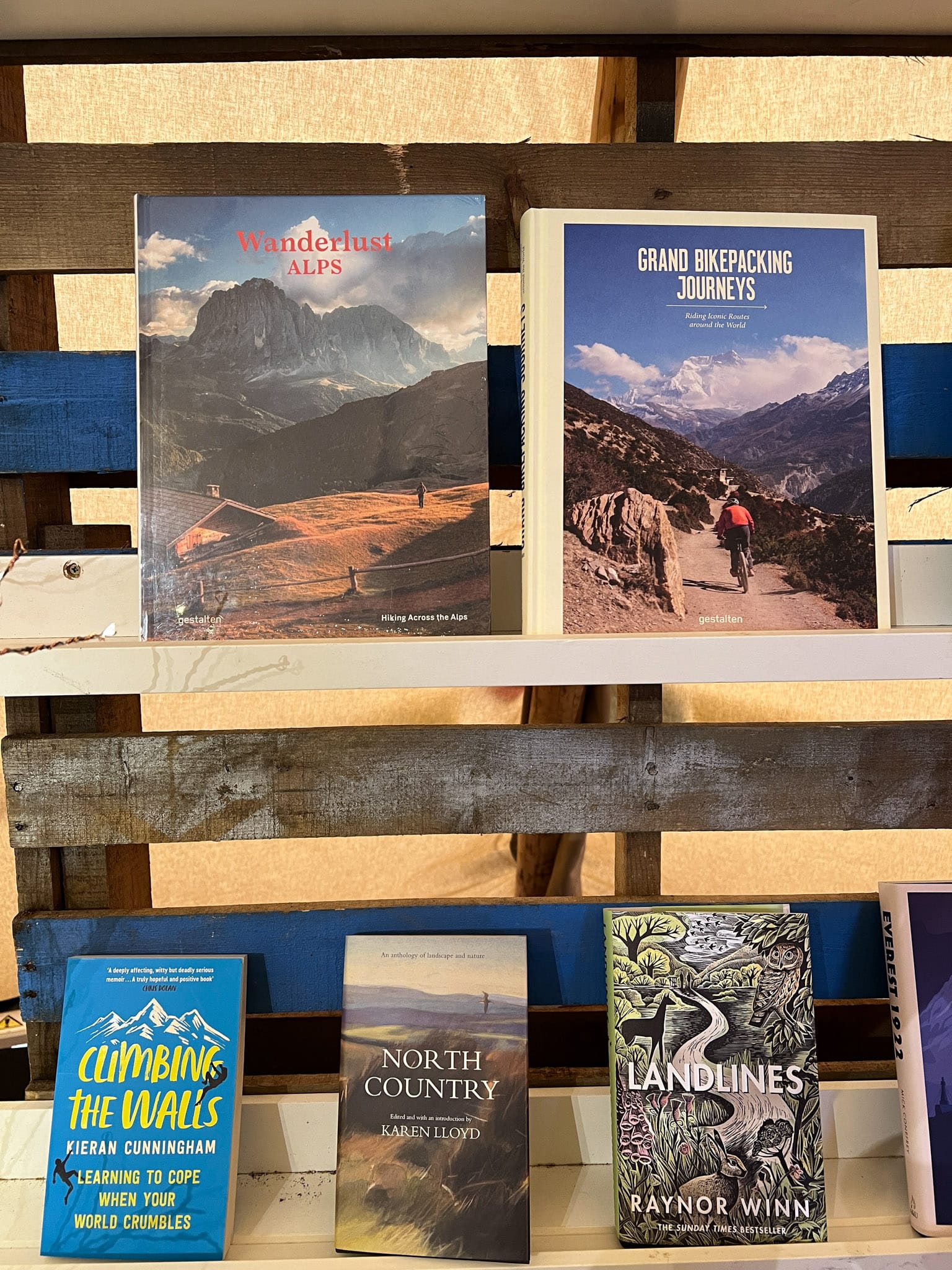
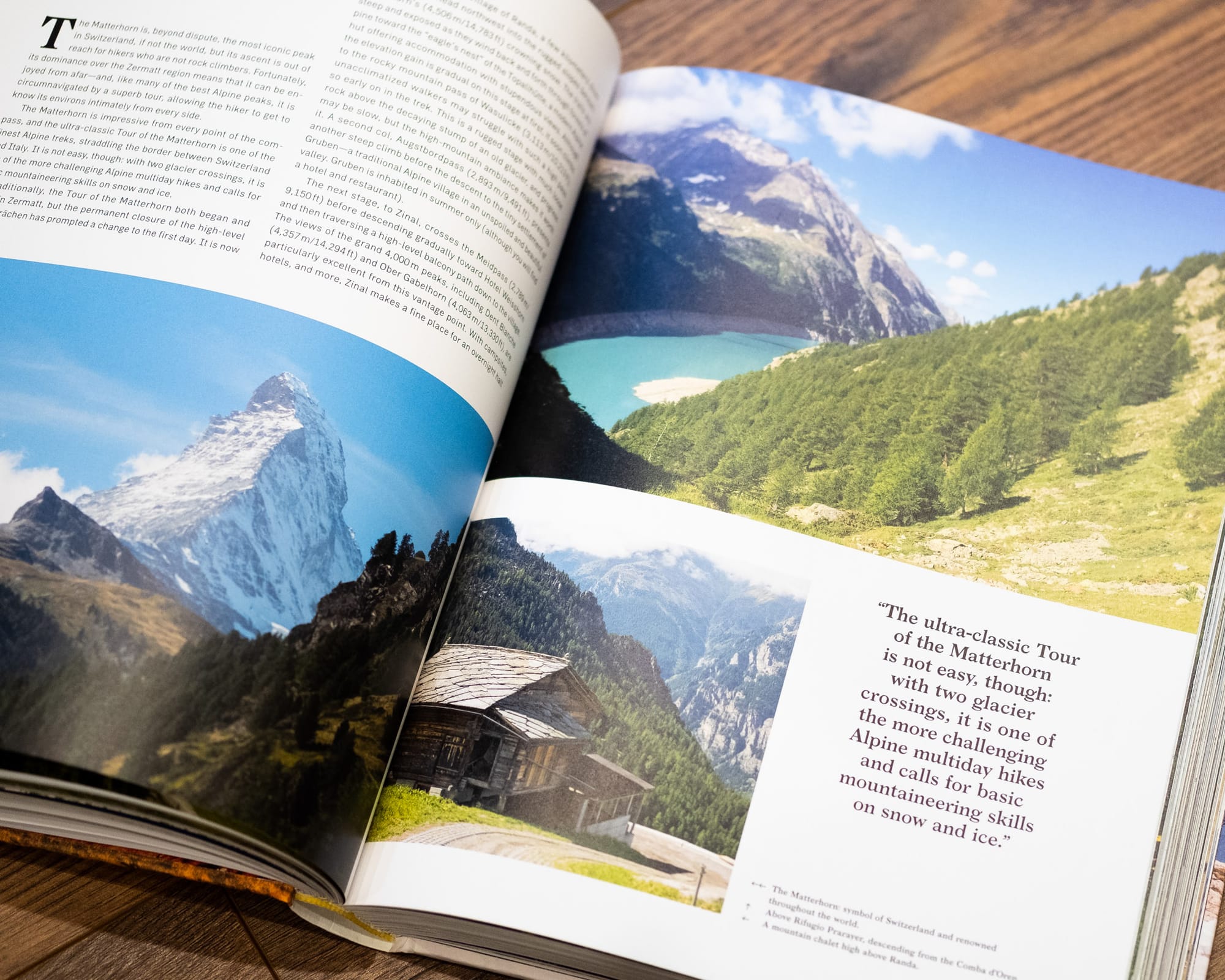
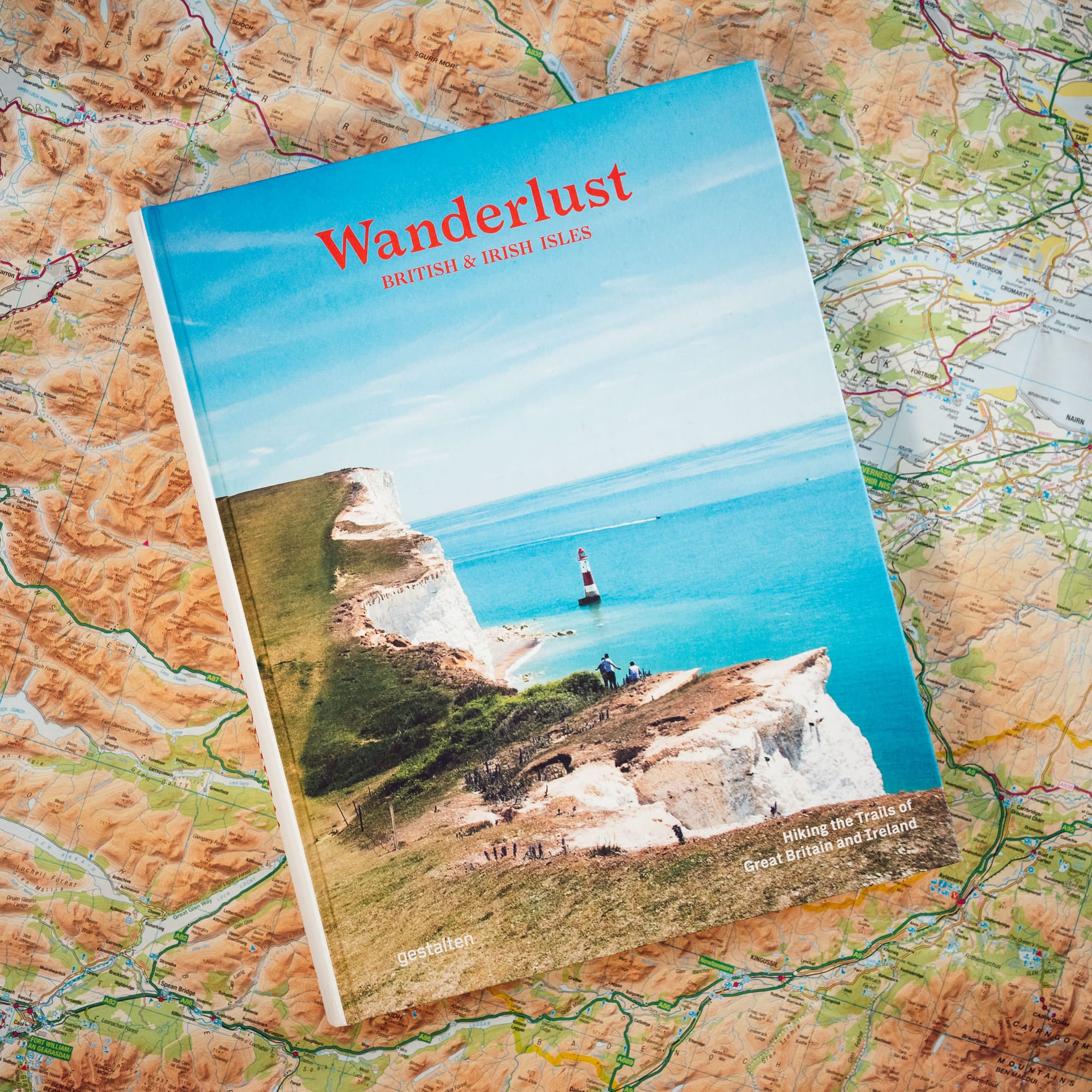
Non-fiction outdoor books. Some of these images © James Roddie, Hannah Roddie
2020 was also when I became editor at Sidetracked: still my greatest career milestone to date. This led to a welcome increase in hours and money. The burnout I'd been courting in 2019 felt a long way away, and I was really enjoying the variety of work I had on my desk in any given week. At last I felt like a 'proper' writer, whatever that meant, and I also felt as if I'd arrived as an editor too. Things were good! I still wasn't earning that much in the grand scheme of things, but at least my financial situation was heading the right way.
Again, I can't congratulate myself too much. Yes I'd worked hard, but I'd also been lucky and made useful connections.
2022 was a great year. Things were going well at Sidetracked, and I even embarked on a major adventure project: Attitudes and Altitude. I'd caught the running bug and had a burning ambition to do a fastpacking traverse of the Alps. We went the whole hog with a Sidetracked project and the financial backing of Montane and Leki. The result was one of the most memorable long mountain journeys of my life – a journey fully paid for by brand support, which is pretty rare in a career like mine these days, unless you're a sponsored athlete.
This was also the year when my wife Hannah and I decided to move back to Scotland to be closer to the mountains. We finally made the move in early 2023. But, again, full disclosure – we're still renters. And this moves us neatly on to the final lesson.
Freelancing is precarious
In my career so far I consider myself both fortunate and the recipient of certain privileges. In the early years, I was lucky that I could afford to earn comparatively little, because Hannah and I were living in her mum's house and the rent I contributed was not large. We simply could not have afforded to live on such a small yearly income otherwise.
It took years for that income to gradually increase to a point where it felt just about comfortable. Never more than this, but enough to save a little bit, have some money for modest holidays in Scotland with Hannah and indulging my passion for vintage cameras. Not anywhere near enough to consider home ownership as a responsible choice. I'm now 38. I don't relish the prospect of entering my forties as a renter and without much of a retirement plan beyond 'keep writing books', but here we are.
The thing is, freelancing is still freelancing. This means peaks and troughs. Just because you had a good year last year doesn't mean that this year will be good too.
I won't go into details, but 2023 was not as good a year as 2022. The outdoor publishing industry is beset from several sides: soaring printing and postage costs caused by Brexit, sluggish support from gear brands (where a lot of the money ultimately comes from), and numerous other factors.
I'm extremely grateful for the long-term permanent positions I hold, as well as my frequent work with TGO and elsewhere. But the unfortunate fact is that rates across the industry remain stagnant. Again, I am not pointing the blame at any business or individual. My colleagues are honourable and decent and are in this business because they love the people, love the stories, love the outdoors, love print. This is a systemic problem, and nobody can just wave a magic wand and fix things.
I can see both sides. Magazines aren't being greedy in failing to increase rates for writers in line with inflation for the best part of a decade. In most cases it would simply be unaffordable for them to do so, and I hear it's the same across much of British media. At the same time, writers, editors and photographers are struggling because their costs have gone up but their income hasn't. As a result, we have to plug the gaps by working more and trying to reduce our costs.
Meanwhile, we're all still freelancers. Very few professionals in this industry are salaried staff. We don't get paid sick leave or pensions, we have to pay our own taxes, and lack of contracts can leave us exposed. Late payment of invoices create cash-flow black holes. Virtually everyone I work with is worried about the industry at the moment. Valued colleagues have stepped out of it entirely to find work elsewhere.
I'm painting a picture with broad brushstrokes here, of course. Some rates have gone up, but rarely in line with inflation and almost never in accordance with the CIEP's recommended minimum rates. And for every bad year there's another good one around the corner.
Is a career in this industry sustainable? Only if you truly love the work itself, and not if you want to be rich. Probably not if you want to concentrate on just doing one thing well. The only way I can keep this whole thing going is by having many different hats – and by hoping that the peaks and troughs from all my different income streams don't coincide too often.
The next ten years
The funny thing about opportunities is that they can be a bit like buses. In recent months a few interesting new things have come my way. Some are still in early enough stages that I can't speak about them, but I can say that I've taken on a new role as a contributing editor at Like the Wind, a gorgeous magazine about running. It seems likely that I'll have a new non-fiction book project to get my teeth into soon. And, not long after publishing our special ten-year anniversary edition, work has just begun on Sidetracked Volume 31.
Although this is all good stuff, it also means I'm starting to feel just a bit overworked and harried again. I don't function at my best when I have to time-block my entire week on Monday morning. My brain needs a bit of space to avoid cramping into a wobbly mess of indecision and overwhelm. I'm nowhere near 2019 burnout levels yet, but I am conscious of the need to keep an eye on the things I say yes to. My work will continue to evolve. Hopefully with a more careful hand on the tiller now that I'm more aware of how my brain works.
Where do I want to be in 2034? I would love to still be editor of Sidetracked, still helping writers tell their stories. Developmental editing is probably the skill I've found most valuable throughout my career – it's certainly the work I enjoy the most. I still want to be writing up my adventures at TGO and elsewhere. I want to have a good few more books out, hopefully including several more pieces of fiction as well as outdoor-non fiction books. I want to have my own platform in the form of Alpenglow Journal (or however it ends up evolving). Financially, I do want to be in a more stable position. Other than that, we'll have to see where things take me.
I don't consider myself ambitious. I don't want to be rich. All I want to do is have the freedom to go on adventures, tell my own stories, help others to tell theirs, and earn a living. I still think that's possible in outdoor publishing if you're good, lucky, work hard, forge valuable connections, and make use of whatever privileges you can. At the same time, it's essential that we support those new to the field as they come up into it. We should be breaking barriers down, not erecting them, and using our privilege to help those with further to climb.
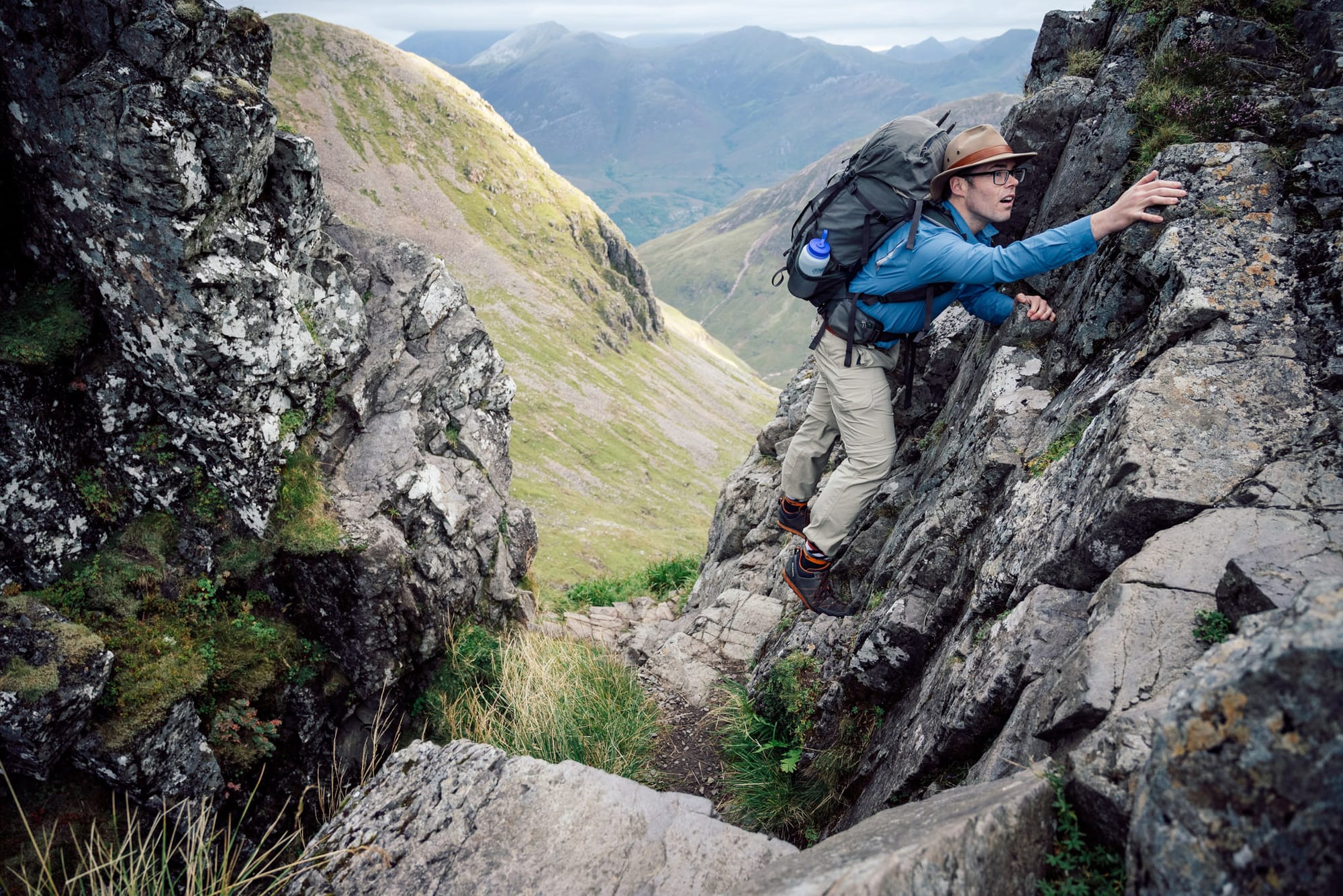
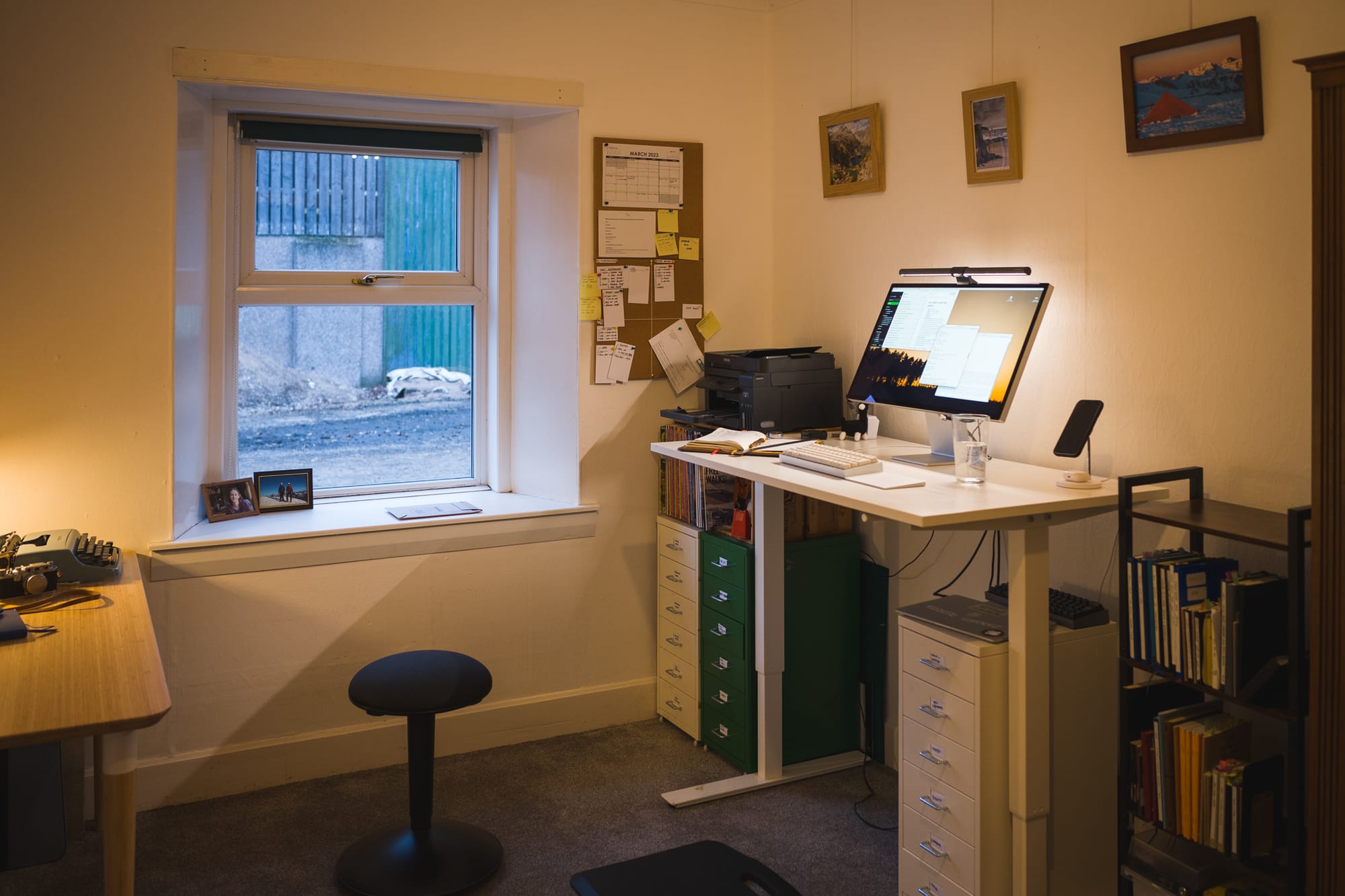
Alex Roddie Newsletter
Subscribe here to receive my occasional personal newsletter in your inbox. (For the fun stuff, please consider subscribing to Alpenglow Journal instead!)



